 Contact us
Contact usIntent
Community
Studio Organo Concepts
About Us
Subsidaries
Studio Organo
TS RERA No.P02400003403.
TS RERA No.P02400003403.
We're moving the architectural ecosystem ahead with leadership, design thinking and creative problem solving. Read about all of our efforts here.
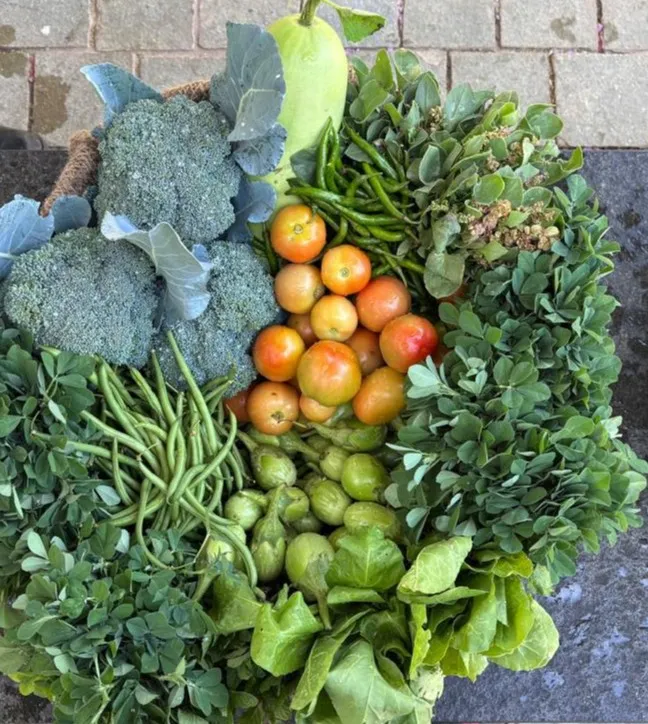
Located in the picturesque village of Antharam, Telangana, Organo Antharam stands as a shining example of eco-conscious living
-min.webp)
Aimed at introducing fundamental healthcare services within the Organo Antharam community, Organo Eco Habitats is delighted to unveil its partnership with Call Health, a pioneer and one of the most integrated healthcare platforms
.jpg)
India's mushroom farming industry is flourishing, presenting lucrative opportunities for farmers and entrepreneurs. This thriving industry not only contributes significantly to agriculture but also caters to the growing demand for sustainable and versatile food choices in kitchens worldwide.

As the first light of dawn crept over the horizon at 5:00 AM, the diligent staff of Organo Antharam embarked on their preparations for the much-awaited Bhogi celebration. The air buzzed with anticipation as they gathered recycled wood, meticulously arranging it for the grand bonfire that was central to the day's festivities.
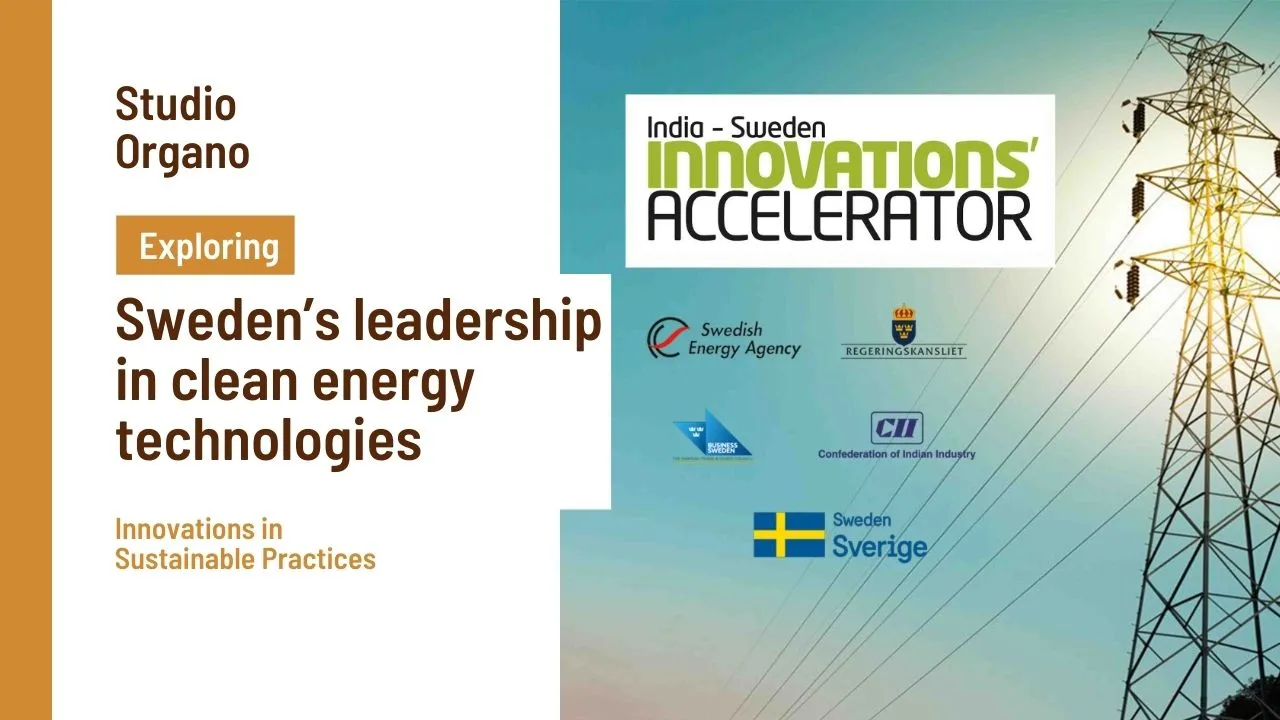
As an invitee from Organo Eco Habitats, I had the opportunity to participate in a one-day workshop at CII centered on innovative clean technologies and engage in business-to-business meetings with the Swedish delegation. This experience provided valuable insights into how Sweden leads the way in clean energy technologies.

In a world where the origin of our food is often shrouded in mystery, the importance of knowing the source of your crop cannot be overstated. As eco-community builders, we understand the vital role that local and seasonal foods play in fostering health, well-being, and sustainability within our residential community.
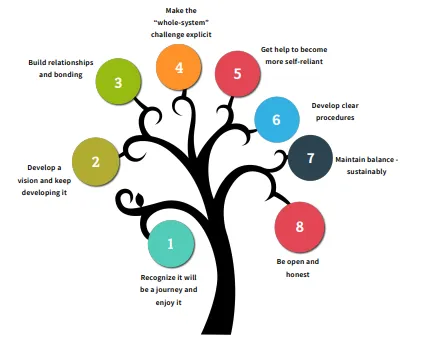
Constructing a sustainable community transcends being merely eco-friendly; it entails weaving a rich mosaic of social, financial, and environmental elements. Inspired by Robert Gilman's seminal piece on eco-village formation, we've augmented the model with four additional vital steps that are close to our hearts.
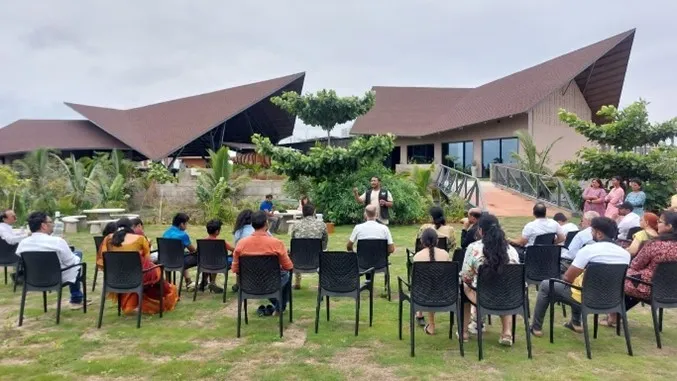
Last weekend, At Organo Antharam we hosted an unforgettable lineup of events that brought neighbours together for a weekend filled with learning, creativity, and socializing.
.webp)
Is it possible for an apartment in the city to be net zero?The density of apartments in the city, especially Hyderabad, has reached to almost 10. This means, for every acre of land, 4.3 lakh sq.ft of built up area is being constructed.

Ever since human beings discovered honey, they have been immersing themselves in its taste, using it to enhance their beauty and immunity. At OFS, we have apiarists who are passionate in harnessing the goodness of honey. OFS Honey Brand has been lauded as one of the purest and best honey available across the counter.
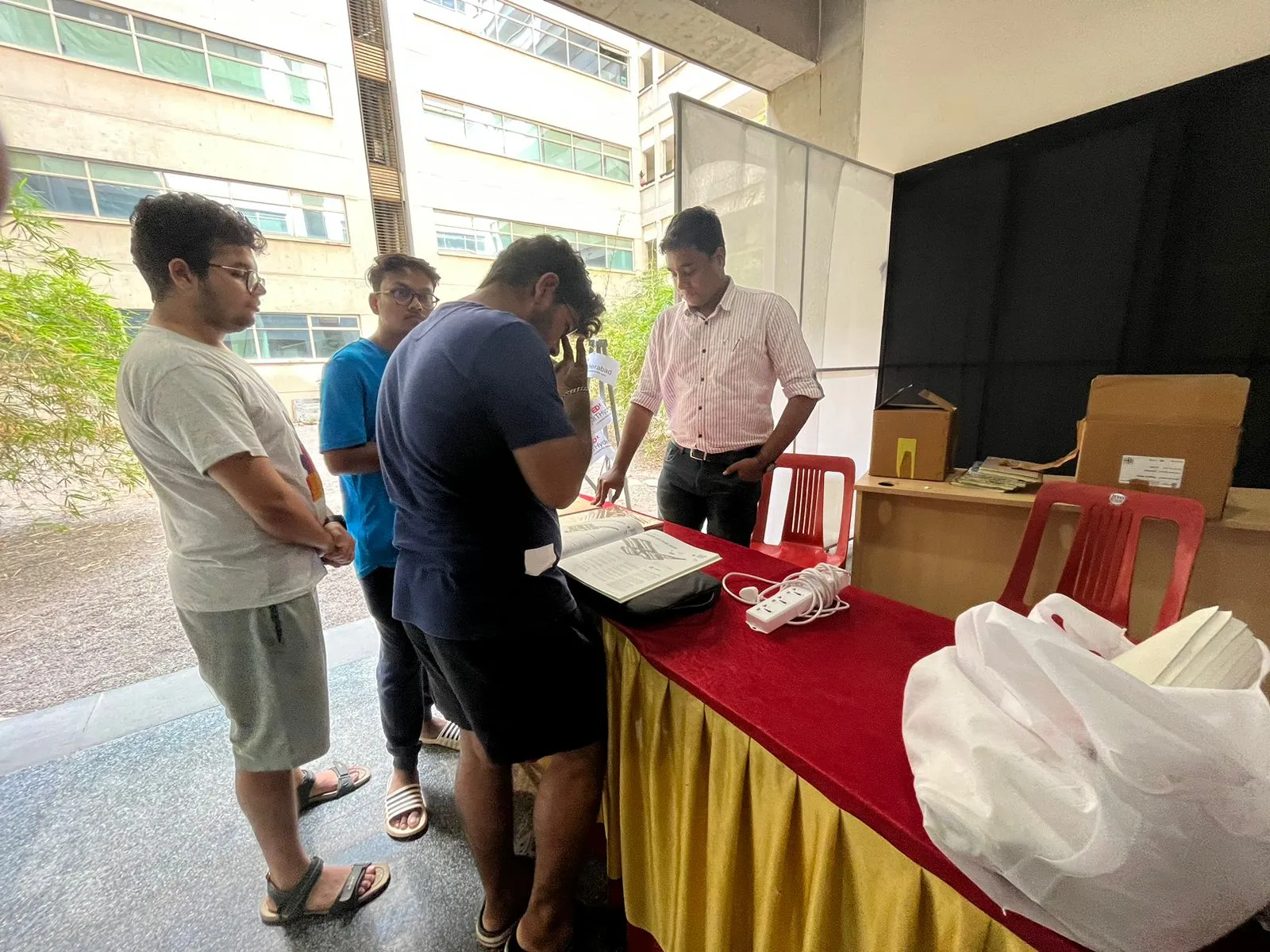
Organo was invited as a sustainability partner for the prestigious TEDx (SAGA) event organised by IIT, Hyderabad. As a representative of Organo, while interacting with students it was evident that this was the first time they had come across eco-habitats like ours. The opportunity to interact with the young minds of the country on sustainable development and conscious living was very fruitful.
.webp)
At Studio Organo, we are exploring a new product type for Rurban Living. An interesting question arose from our internal conversations about a group of urban families and their unmet need to live away from the density of city living and be closer to nature, while also being frugal with their investment.
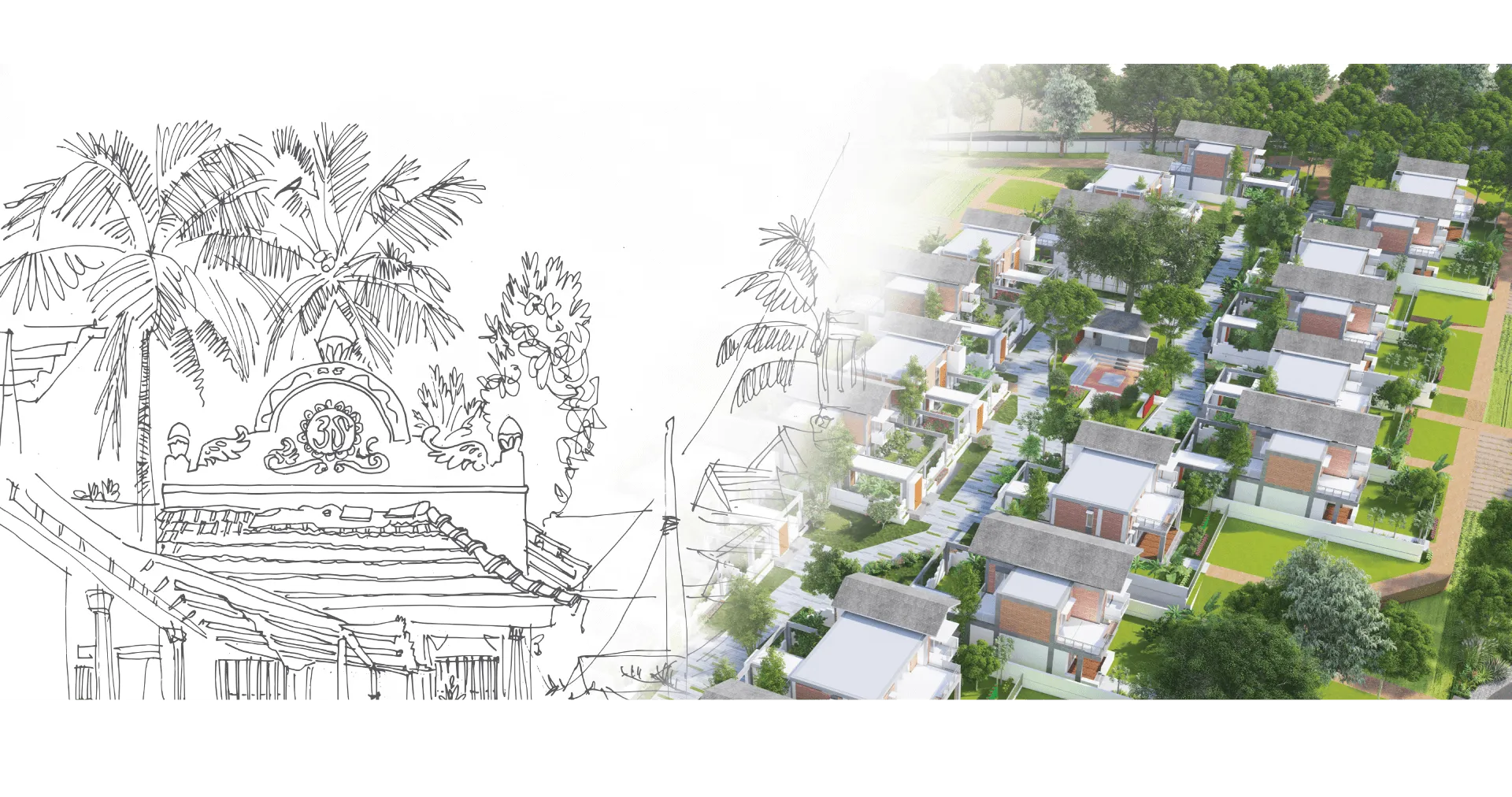
Welcome to Organo Antharam, the eco-habitats that offer an all-immersive experience of Rural + Urban lifestyles. Our architects reimagined the indigenous villages of India and blended the best of both rural and urban benefits to create homes as highways to good health.
%20(1).jpg)
Hyderabad and around area is known for average Rainfall since past many years,same is expected in future , intact tendency is little bit changed,more rainfall in less time duration.

Food, Water, Air, Earth, Energy, Shelter, and People are the Seven Strands of Sustainable Living (Sapthapatha) at Organo Eco Habitats.

Rediscover yourself with Rurban life. Go back to the simple days when health & relationships reigned supreme, and pursuit of wealth was more for providing comforts to our near and dear.
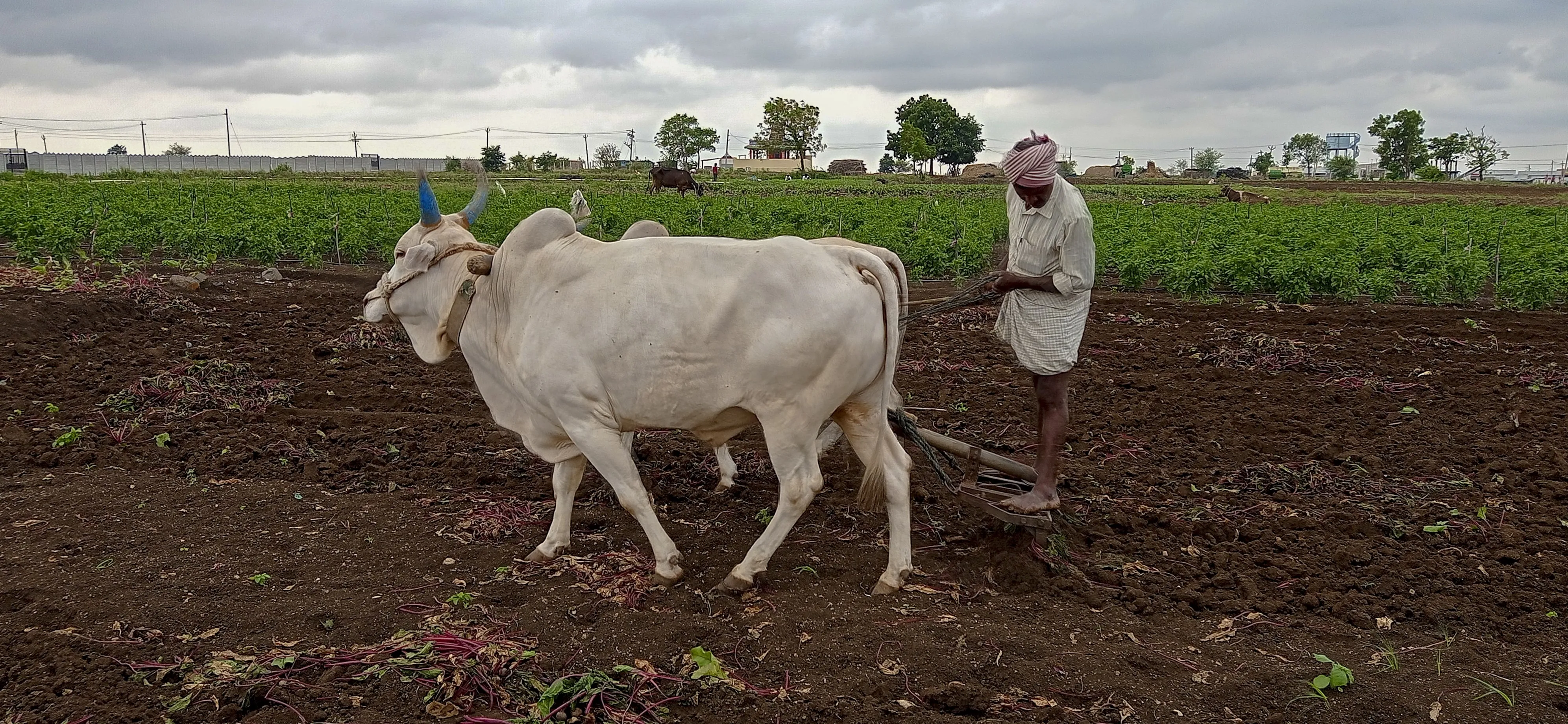
OFS is a signature farm store established by Organo Eco-Habitats with the intent of sourcing and providing safe and witnessed food to its customers. In today’s world where we are clueless about the origin of the food we eat and feed our loved ones, Organo Farm Store (OFS) bridges the gap between consumers and farmers who implement safe farming methods and cultivate naturally.
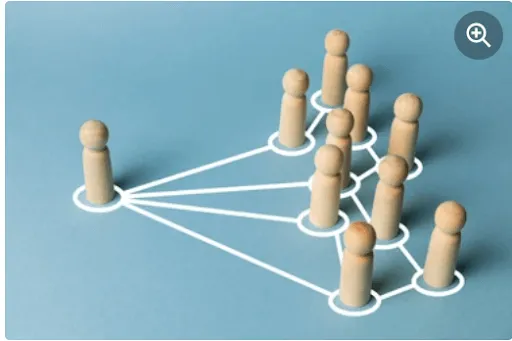
The main challenge for most of us living in cities is maintaining our homes. Finding trained domestic help, whether it’s in the kitchen or housekeeping services, is the key to live stress-free life. This issue gets more intense when it comes to farmhouses. Considering the fact that we spend mostly our weekends in our second home, the upkeep is mostly dependent on the help we hire. In addition to the other areas, faming gets added to the list of services we would need from our domestic staff.

From energising breakfasts to lazy lunches, celebratory dinners to easy, breezy parties, hang out with friends to tea parties with mates, take your pick. There is no shortage of unique food experiences at Organo Kandawada. With nearly every experience feeling like the best, you may not know where to focus your time first.
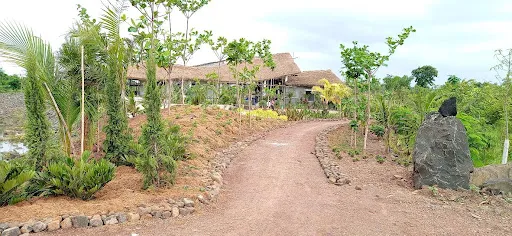
Think local. Live in Eco-Habitats. Flourish in harmony. Leave a legacy.If you’re someone who is committed to living consciously, you’ve already proved that your mindset is a refreshing departure from the take-all and use-all approach.
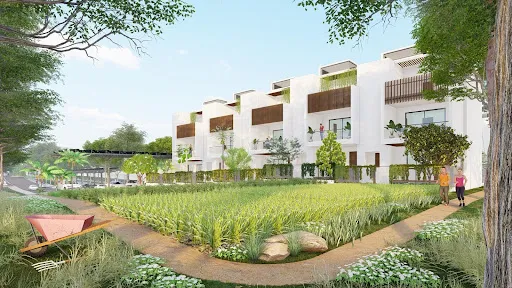
At Organo eco-habitats, every new typology of living we arrive at is the outcome of in-depth analysis of a specific family typology. At the core of every research, there is an empathic need to find solutions to design apt living spaces for each family type.
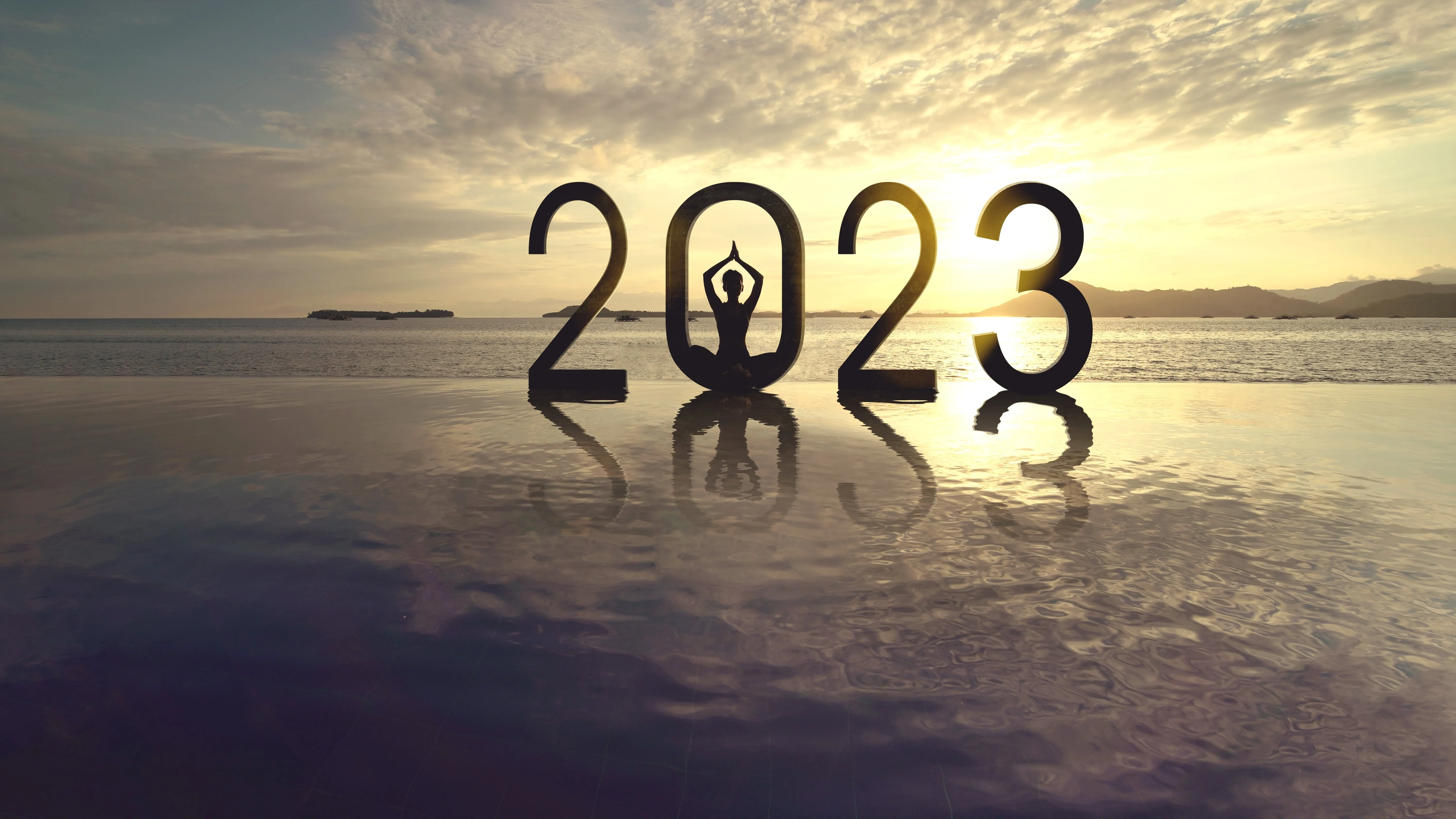
Organo’s vision for 2023 — To continue to create apt eco-habitats for specific user groups
.webp)
The evolution, growth and development of any city is the aggregate of a set of processes that have been effective in that area over a period. And `land’ is at the centre of growth and development
.webp)
For us at Organo eco-habitats, our projects have been our biggest teachers from the beginning of our journey. The lessons we learnt at Organo Naandi were applied to Organo Antharam. And what we learnt from Antharam will help us in our other projects.
.webp)
In part 1, we discussed optimizing buildings to reduce energy consumption right from facade to heat loads coming into the building, as a first step to getting rid of fossil fuels.
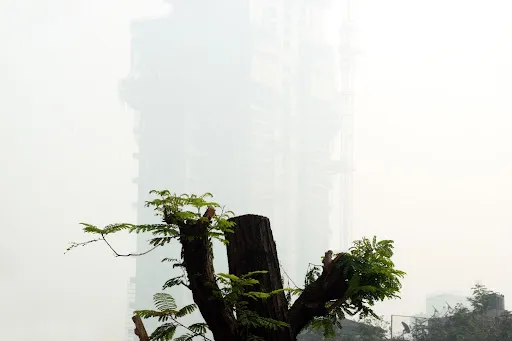
Is climate crisis real? What does it mean to you and me? There are huge conferences being organized across the globe like the massive COP 27 in which various representatives from different countries are meeting and discussing extensively about the perils that are looming large on the planet. They’re figuring out alternatives to common governance methods.
.webp)
When it comes to residential design, typically the developers find their demand based on market analytics that are based on findings by reputed research organizations. Based on that information, they find the land and supply accordingly.
.webp)
In our effort to design and manifest eco-habitats, we come across this question, often from clients and sometimes from collaborators - why are you developing a community so far away from the city? We are sharing behind-the-scenes story of how we arrived at Organo Kandawada, as a way of explanation.
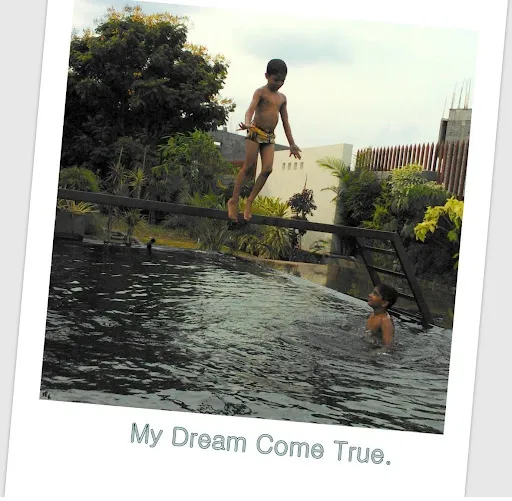
A true story as told by Nagesh Battula. “It’s okay you can jump”, as I said this to my 7 year old, his eyes lit up.
.jpg)
We are often asked how and why we choose a particular design for each community club in our eco-habitats. The form and style are a balance between what we believe will appeal to the stylistic expectations of the residents and our own push for design or material innovation.
.webp)
When fossil fuels are burned, they release large amounts of carbon dioxide, a greenhouse gas, into the air. Greenhouse gases trap heat in our atmosphere, causing global warming. Already the average global temperature has increased by 1C.
.webp)
Who says you can’t enjoy the pleasure of gardening if you don’t live in a sprawling bungalow? Every house has a terrace, and every terrace can be transformed into the most beautiful garden.
.jpg)
The true value of any Rurban Eco-Habitat lies in the fact that there is a collaborative spirit in the way the inhabitants from rural and urban backgrounds and demography come together.
.jpg)
Collective farming is a farmer’s community that shares farming-related infrastructure while enjoying the fruits of collective living. Farming is a laborious job, which includes several small tasks that need to be done right for results
.webp)
Antharam, Kandawada & Damaragidda are going to turn from barren lands to biodiverse environments. The process has already started.
).webp)
At Organo, localization is a key factor which differentiates the community/ eco-habitats from other communities. In line with the Triple Bottom line philosophy of Organo, at least 75% of the workforce required to run and maintain the eco-habitat are recruited locally.
.webp)
Creating micro climates conducive for a healthy and congenial life is key to creating a vibrant eco habitat. The concept of Thermal Comfort is key to understand the micro climate and temperature within and around a locality.
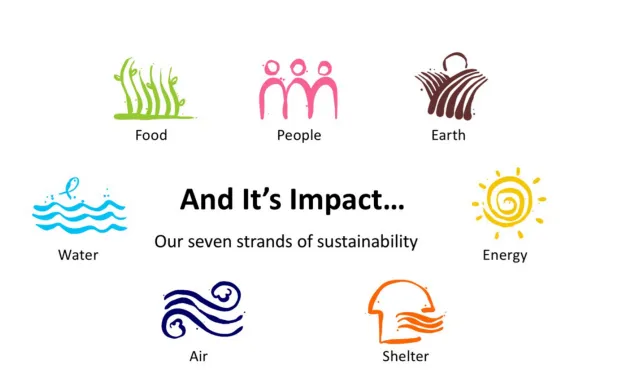
Being from an architecture background, we speak to a lot of people. What we realised is that there are many families living in the city who want to lead a healthier lifestyle. Who want to reconnect back with how they have grown or their parents have grown. Who want to live in a more eco-friendly way.
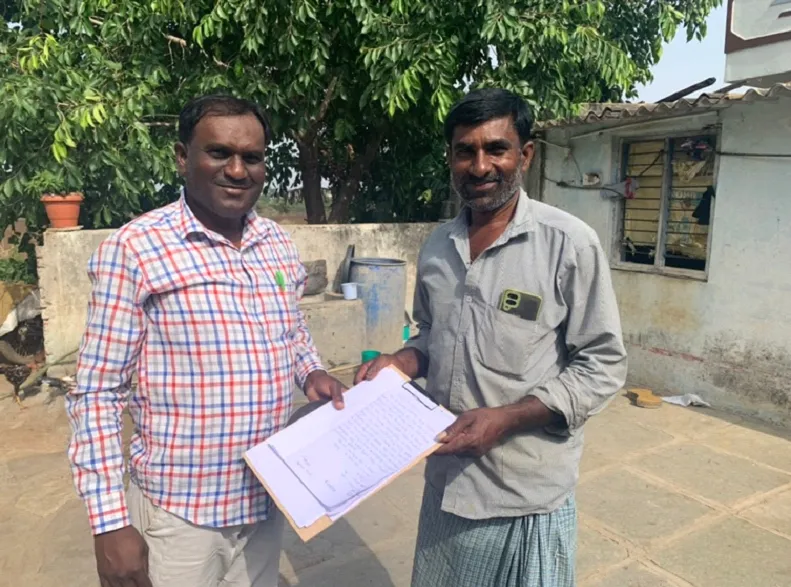
In continuation with our article Farmer Consumer Connect- Humble beginnings, Organo has been working with the farmers in the villages around Organo Antharam project to source safe and witnessed food grown using natural farming methods. This is an attempt to complete the food requirements of the families who are part of the eco-habitats.
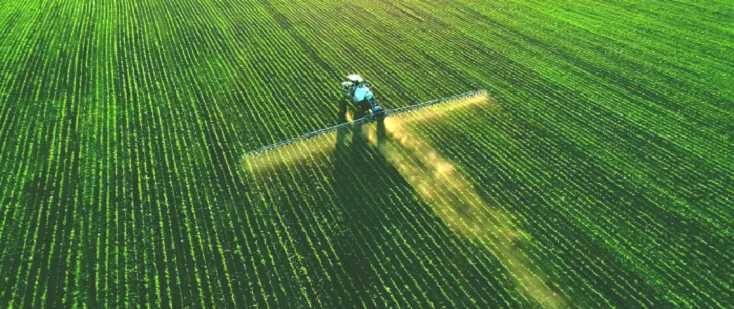
According to the data published by the government of India in February 2020, pesticide consumption in our country was more than 40000 metric tonnes. Telangana ranked fourth in the nation-wide list with over 4,900 metric tonnes of chemical pesticide consumption in that year.
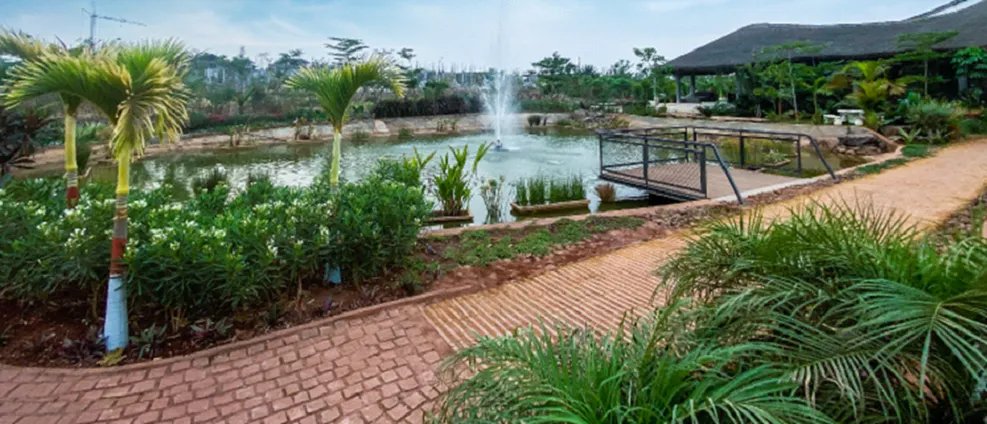
Right from our 1st day of schooling, we have been taught the importance of plants and the role they play in our day-to-day lives. But with time, we all seem to forget its importance and take it for granted altogether. It’s funny how the people who once never hesitated to voice their love for nature now find themselves living in a concrete jungle.

Sleep is as essential to our daily needs like food and water. Although we may feel that sleep simply rests our tired bodies, our brain remains active throughout the night. Sleep plays a critical role in the brain as well as physical functioning.
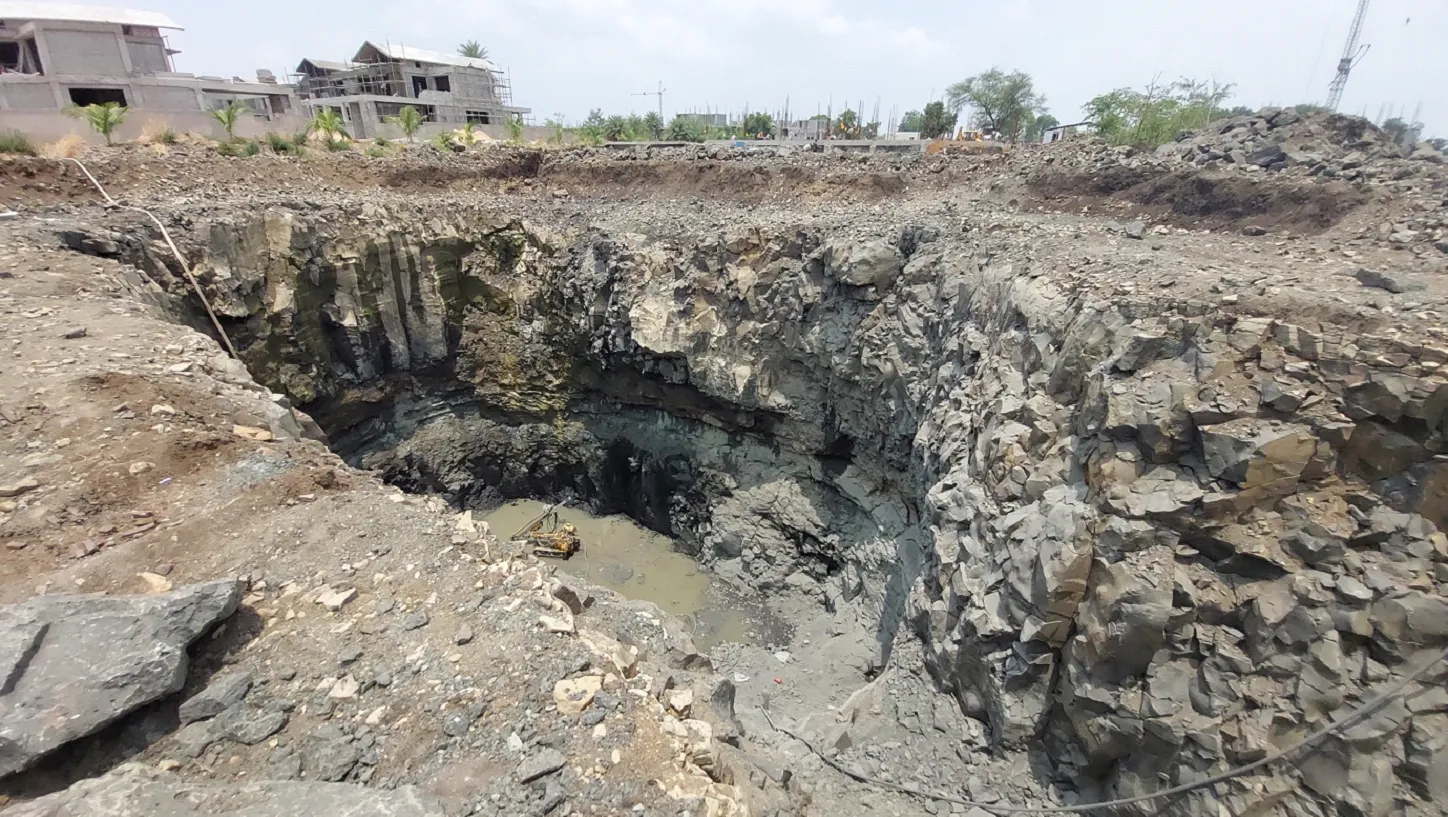
At Antharam water resilience is a big goal we are trying to reach.To accomplish this, we are looking at various ways in which surface rain water run off can be tapped.Although ground water sources can be reached if we go deep enough, we do not want to do that.
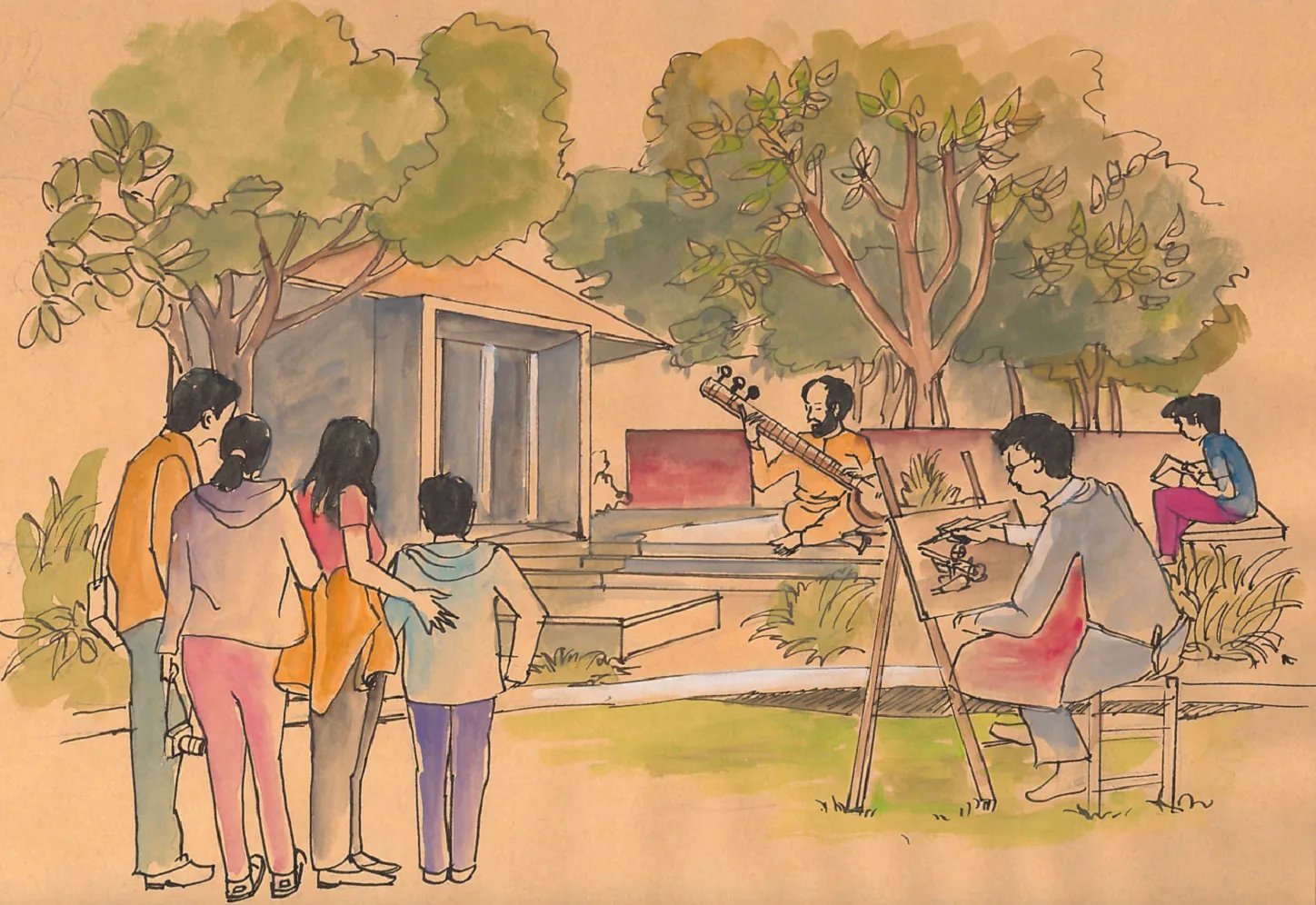
Organo Antharam community is an eco-community designed for feet rather than wheels. The intention was to create simple and safe street experiences that also brought back opportunities for residents to enjoy serendipitous meetings, carefree play, quiet areas for contemplation and vibrant spaces for collective gathering and celebrations.
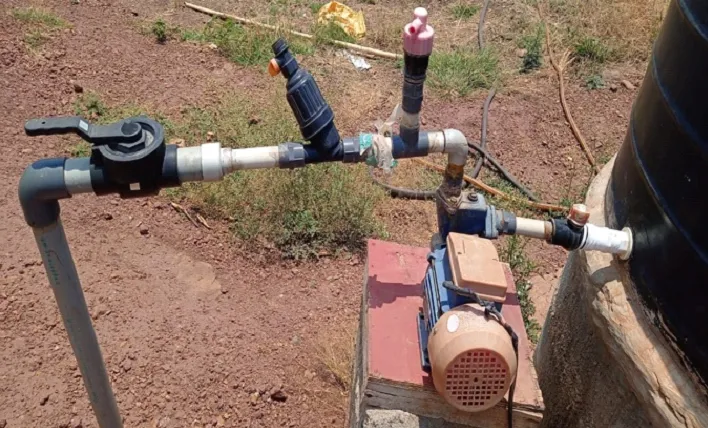
Access to safe and witnessed food is an integral part of the experience of living in an Eco habitat. The farming practices followed in our eco habitats take a localization approach to cultivation.
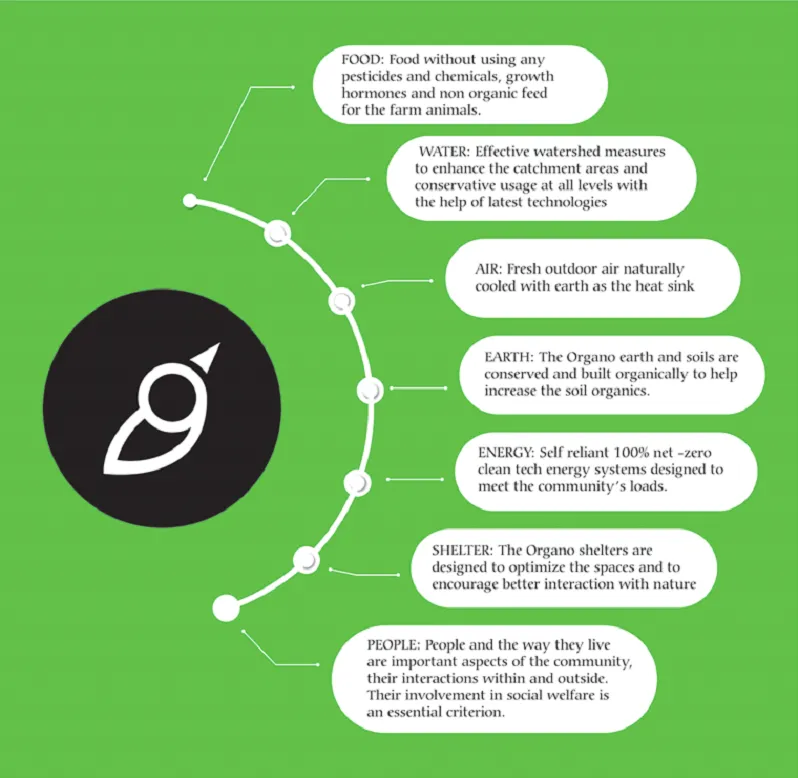
To design a water-balanced and drought-resilient community, at Antharam, detailed hydrogeological studies have been made and a 60-lakh liter dug well is being made.
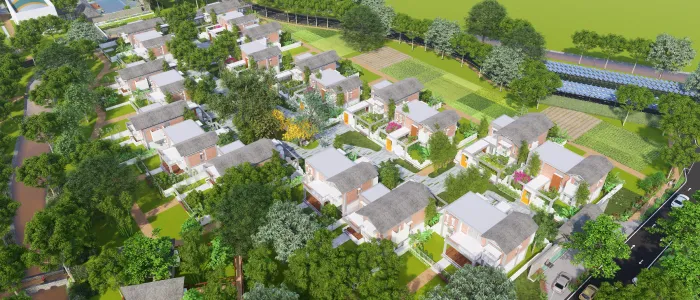
Everybody is unique. You will start believing that uniqueness comes from simple changes. Breakaway from the conventional cookie-cutter homes and enjoy the one-of-a-kind rural lifestyle and modern amenities of the farmhouses at Antharam. The best part of the cluster design is that no streets look alike, offering a unique experience.
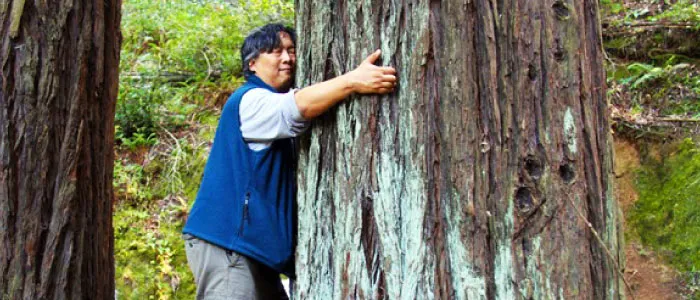
In 2014, the Koalas in Australia made global news for hugging trees. But this seems very unusual for anyone who knows that Koalas are tree-dwelling creatures.
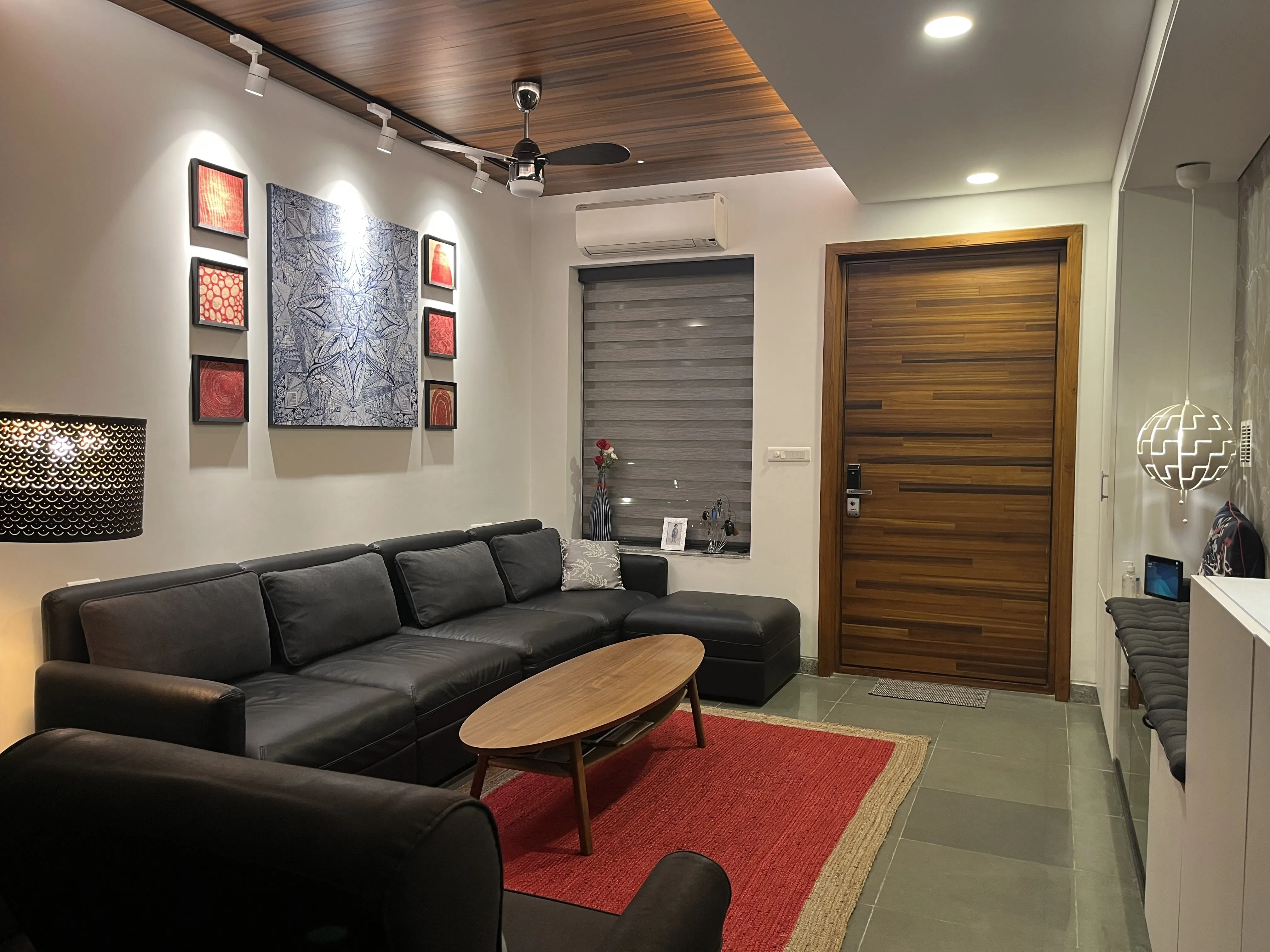
“Clutter is an overabundance of possessions that collectively create chaotic and disorderly living spaces,” says Joseph Ferrari, a professor of psychology at DePaul University in Chicago who studies the causes of clutter and its impact on emotional well-being.
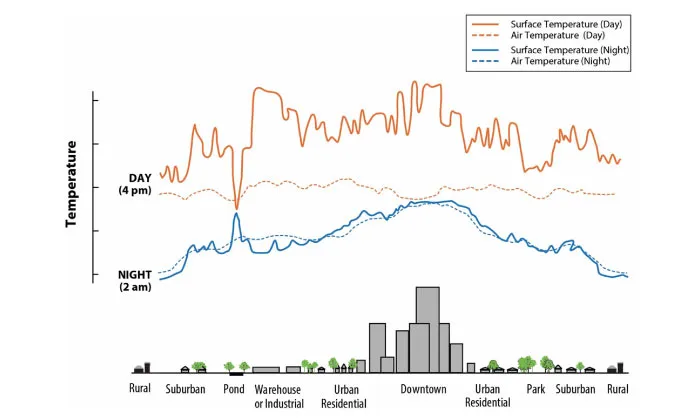
According to US EPA, Heat islands are urbanized areas that experience higher temperatures than outlying areas. Structures such as buildings, roads, and other infrastructure absorb and re-emit the sun’s heat more than natural landscapes such as forests and water bodies.
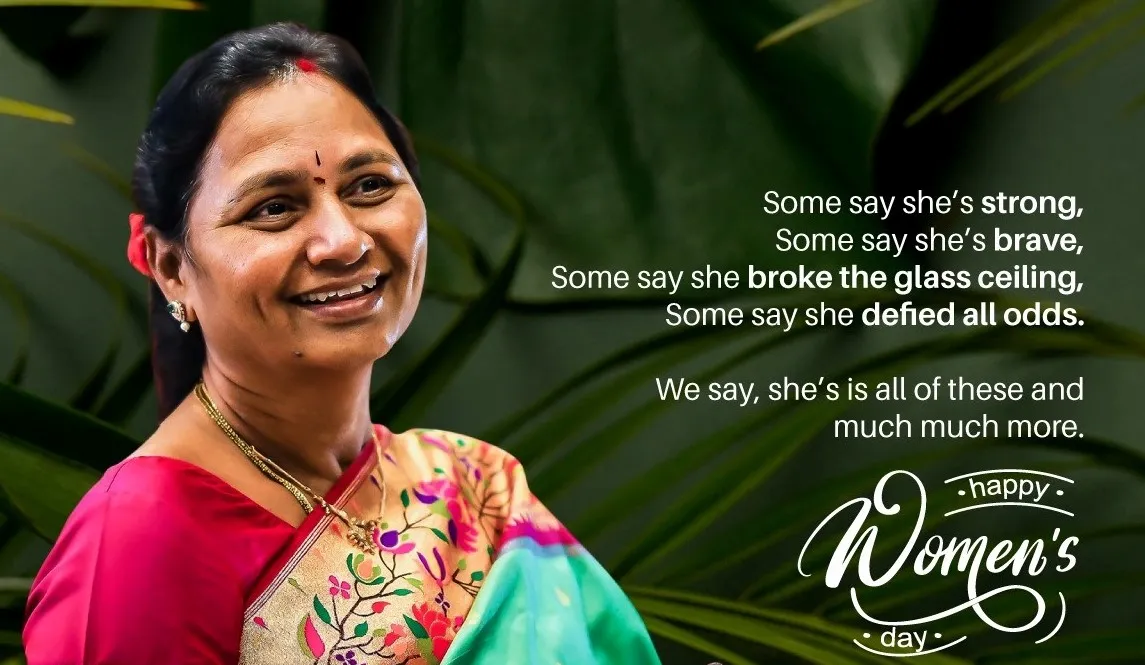
Meet Vijaya Durga, Co-Founder, Organo eco-habitats who takes her work seriously but wears her success lightly. She has headed 100s of construction projects and with every project she has consolidated her position as the Numero Uno as far as quality & timely delivery are concerned with zero compromise on design values and impeccable work ethics. She has built organisations, surpassing every expectation and setting new benchmarks.
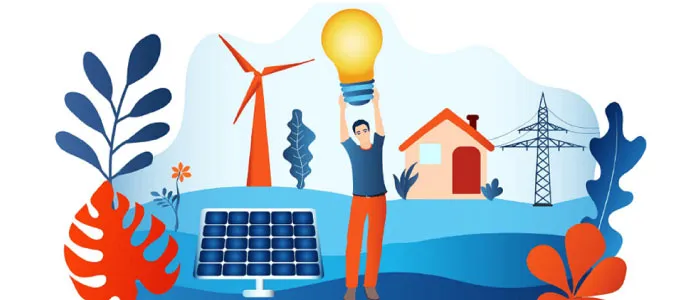
Antharam’s sustainable practises transform the community and its resident’s into prosumers at a micro-level. The primary difference between a consumer and a prosumer is that the consumer buys various products for consumption while the prosumer takes adequate steps to produce the products and then consume them. Antharam's design is based on the model of a prosumer community where production and consumption happen parallelly. Here are simple measures taken in account for the execution of the same.
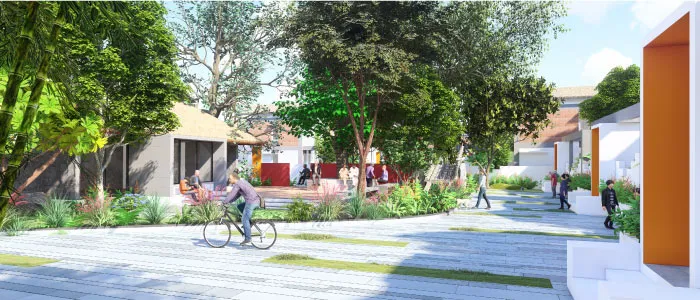
There are various studies which state that our mindset, habits, moods and life all together depend on the way our homes, communities and cities are designed and this is because we spend more than 90% of our time indoors. It has a much larger impact on the children that are exposed to these environments and shapes their personality as they grow up. Hence the built environment plays a huge role in affecting the health and well-being of us and our family members.
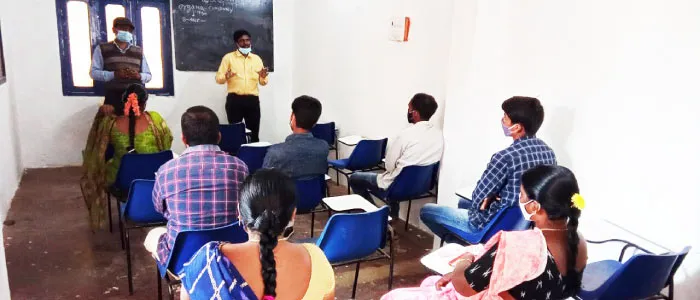
The eco-habitats by design are located away from the cities and in rural or per-urban areas. For any community to become an eco-habitat, there should be a symbiotic relationship between the community and its surroundings. The relationship can be with respect to any physical aspects like water, air, food etc., as well as people to people connect. The influence of this relationship is more pronounced to a certain extent of physical and emotional space. In order to define this space, we at Organo have taken the seven strands of sustainability or saptapatha (earth, water, air, people, food, shelter, and energy) as parameters around which the influence zone is defined.
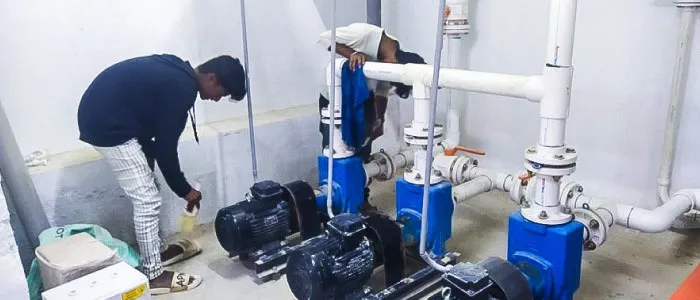
While analysis any technology, it becomes very important for us to analysis the cost-benefit analysis of the overall strategy. Especially in an eco-habitat such as Antharam, where one system has an impact on a lot of other variables, it becomes even more crucial.
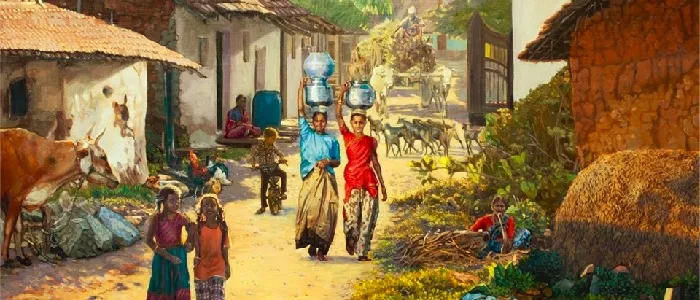
As a one of its kind community in India, Organo Antharam is what we call in our Studio - a Cluster Homes Community. It was conceptualised to replicate rural design aspects of a village clubbed with urban aspects of urban areas.
.webp)
Food is one of the main strands of the Saptha Patha principles based on which Organo’s eco habitats are designed, built and operated. The concept of locally sourced food is integral to ensuring that living in the eco habitats is sustainable as it benefits both the local producers (farmers) of food and consumers of food (Eco habitats residents). The producers get a fair price for their produce and the consumers get genuine, locally sourced and witnessed food.
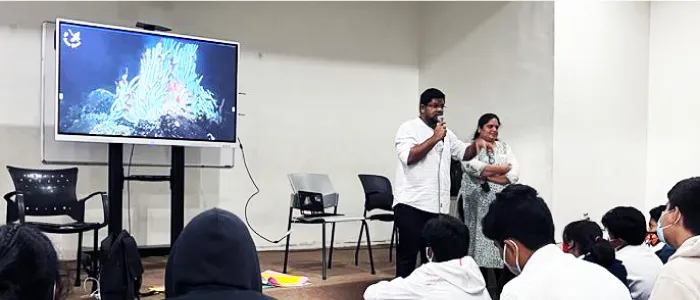
The whole event went very well. I’ve never seen any seventh graders being so proactive and curious about the topic. We went there with an expectation that it would be a monologue but the children asked questions and participated in discussions which helped us share our thoughts and experiences with them.
.webp)
At Naandi, we have created a water-balanced community. This means that the annual water budget is below the total amount of rainfall falling on the land. The community has been managing only with rainfall and Borewell's until now. Some of the water falling on the land is diverted to ponds and rainwater storage structures but most of it is directed to deep aquifer recharge bore wells. These Borewells improve the ground water table.
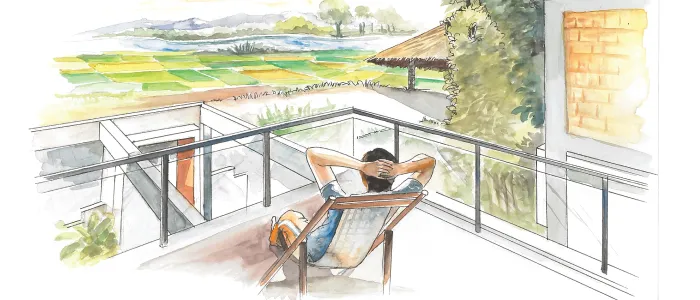
Well! No one has ever bothered to ask the Hare his side of the story, so let me tell you the story from a different point of view…I met the Hare and sat down with him for a heart-to-heart talk.
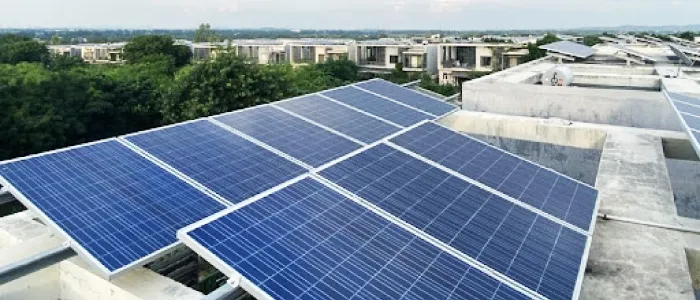
All homes are connected to form a micro-grid within the community. A micro-grid allows power-sharing between homes within the community.
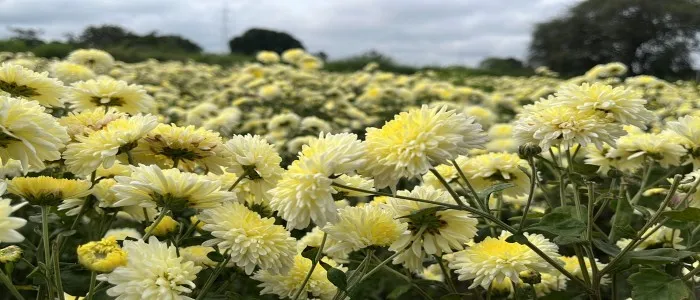
Every year during festival months, the flowers from farms are harvested at least a week in advance and delivered to the wholesale markets in the city. In most cases, the flowers such as roses, also travel from other neighboring states like Karnataka (Bangalore) owing to the city’s demand. Retailers from all over the city congregate at the wholesale market to buy flowers and sell them at shops.
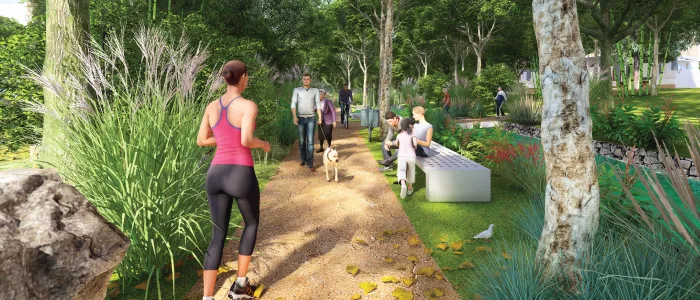
For all those people who have a tough time sticking to a gym routine or workout routine, we are here to give some good news. In fact, it’s pretty NEAT, quite literally. An acronym for Non-Exercise Activity Thermogenesis, NEAT is the energy we spend in everything we do that does not include sleeping, eating, sports or gym exercises. To be more specific, it constitutes the energy expended walking to work, typing, performing garden work, undertaking agricultural tasks and fidgeting.
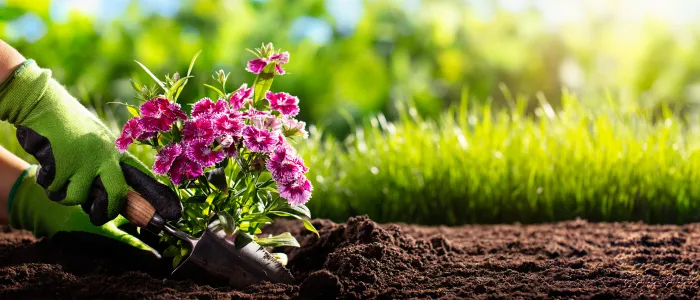
Have you tried Gardencersise yet? Hear ye, hear ye! It’s time for all the lovers of gardening to revel in their passion and go for it with renewed vigour. Yes, gardening has been officially declared as one of the best forms of burning calories. So far, we only knew of the therapeutic benefits and now with an increasing number of studies declaring it as a perfect exercise, the green thumbs can rejoice! Here’s one for starters –keeping your garden in shape keeps you in a much better shape than the ones you’re tending to! Let’s then go on an easy, breezy ride of getting into top form even as we create the ideal space for our green co-dwellers.
.webp)
Organo is undertaking social impact initiatives in the five villages identified as part of the eco-habitat boundary. The villages being Antharam, Hasthepur, Venkannagudem, Nowlaipalle, and Kandlapalli.
.webp)
There is a lot of advice that goes on nowadays about conserving energy. Switch off the fan, switch off the TV, the phone charger, the light, the fan, etc. Every little bit of energy saved is carbon stopped from escaping into the atmosphere. To make sure global temperatures don’t exceed 1.5 degrees, you have todo whatever is within your power.
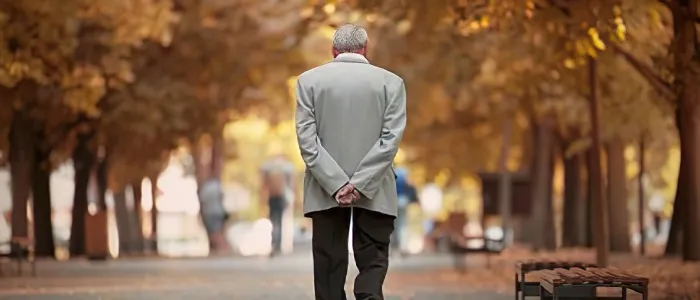
Not so long ago, India was known as a country where the family elders were treated with utmost reverence and families revolved around them. But in the last decade or so, with individualistic mindsets on the rise, the seniors are being accommodated according to our convenience and comfort. With the rat race consuming the best of us, our parents and grandparents have been left behind to fend for themselves. With no peers for company and not wanting to interfere in their children and grandchildren’s lives, an increasing number of elders are experiencing isolation & loneliness like never before, more so in cases where one partner has passed on. The way living spaces are being designed and built isn’t helping either. The ubiquitous apartment culture may be a boon for the convenience-seeking youngsters but has turned into a bane of the older people’s existence. With their friends scattered all over the world, and their own limitations imposed by aging, they are being increasingly left to their own defenses.
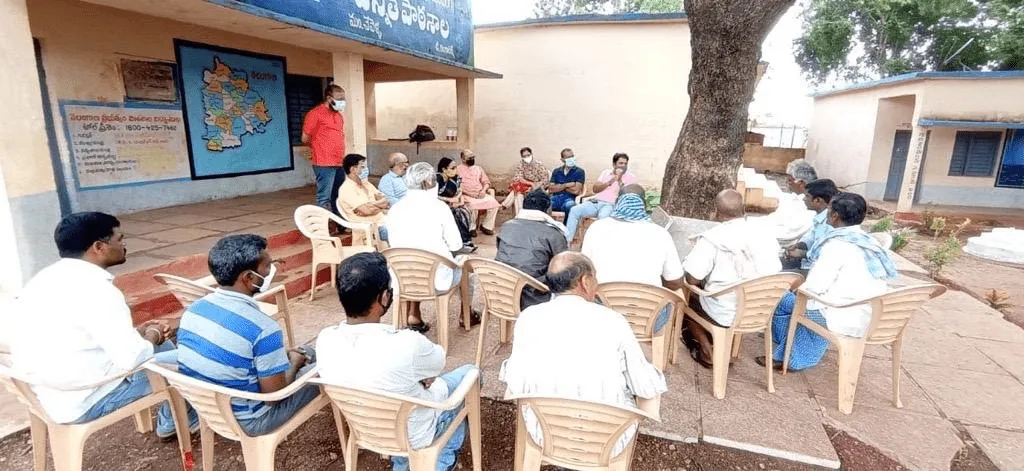
We were recently invited by COUNCIL FOR SOCIAL DEVELOPMENT (CSD) to be expert speakers as part of their CAPACITY BUILDING WORKSHOP FOR PhD. SCHOLARS IN SOCIAL SCIENCES.
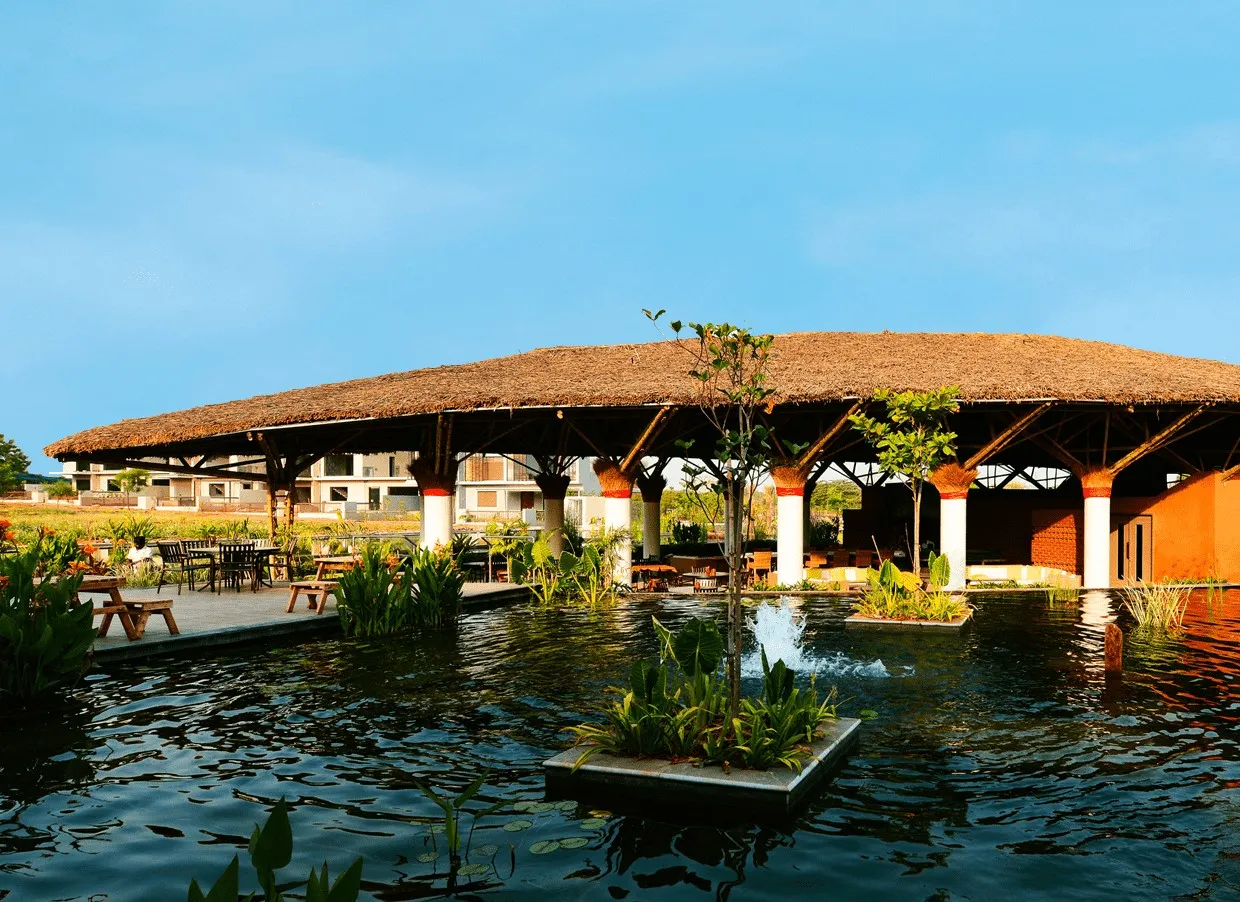
Imagine a swimming pool, and what do you see? A slab of sterile blue water, surrounded by tiles. It doesn’t have to be like that: imagine instead a pool of fresh, clear water, fringed by native plants and that is close to nature. Bio Pools or Natural Swimming Pools are a replica of village wells where naturally, the water is fresh.
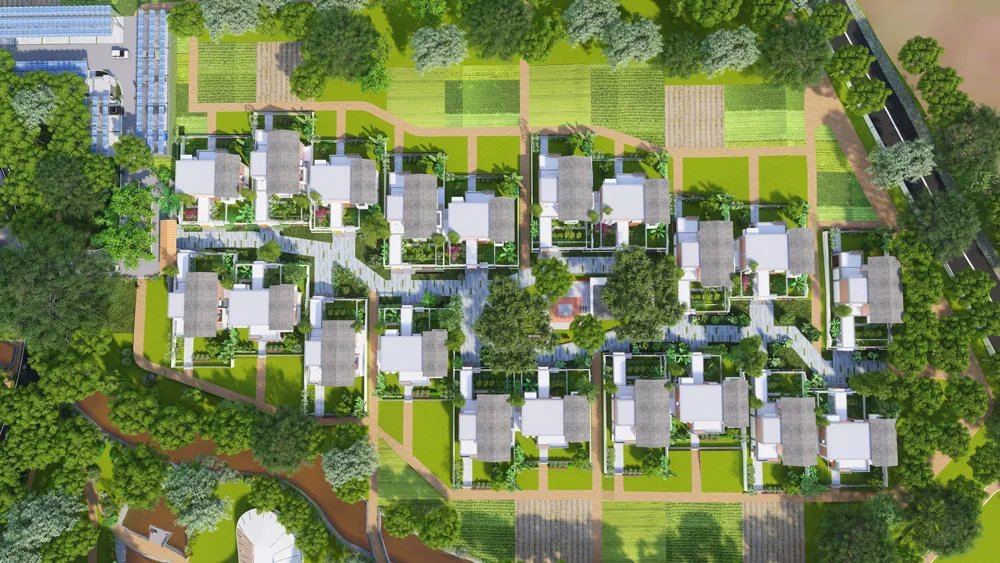
Learn how Cluster Design at Organo Antharam Hyderabad is Improving Cross Ventilation. Our unique staggered design provides increased Ventilation!
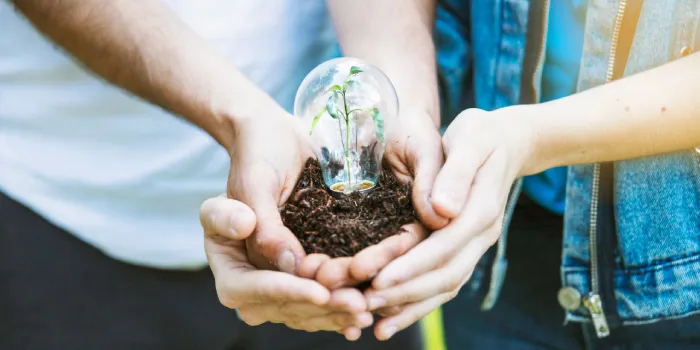
Are you ready to Build a Legacy by contributing to Sustainable Development and Counter-Urbanisation? Organo Antharam Hyderabad offers the solution. Learn More!
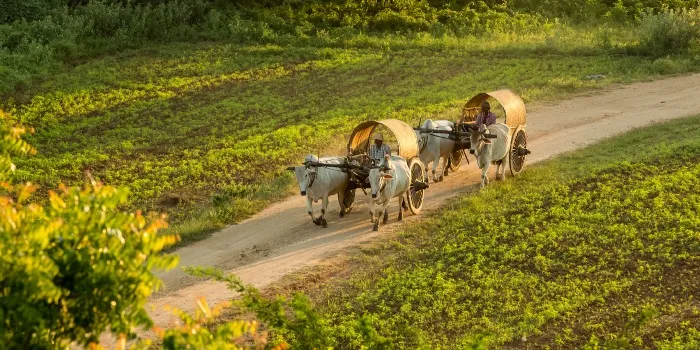
When we chose Antharam for our next project, we made sure it was not on the highway. We picked the site that was closer to the village. In addition to Antharam, there are four other villages within a radius of 5 kms. We named the project Antharam to bring the focus to the village and its activities.
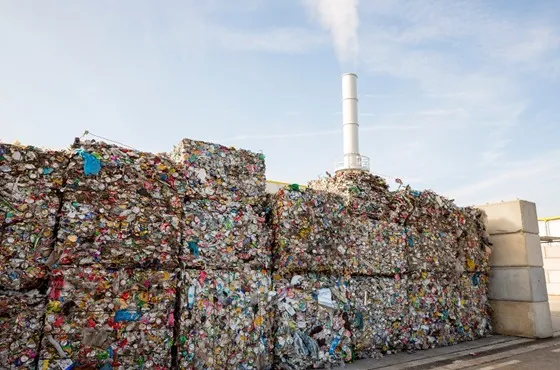
Facts we need to know about solid waste management. Solid waste management is a universal issue that matters to every single person in the world. And with over 90% of waste openly dumped or burned in low-income countries, it is the poor and most vulnerable who are disproportionately affected.In recent years, landslides of waste dumps have buried homes and people under piles of waste. And it is the poorest who often live near waste dumps and power their city’s recycling system through waste picking, leaving them susceptible to serious health repercussions.
.webp)
It’s so strange that we focus mostly on the visible aspect of our lives when our existence is mostly dominated by the invisible aspects - Mental, Emotional and Spiritual. Most of us live in our minds and are ruled by how we feel and how connected we feel. And yet, all that we focus on is the `body.’ It’s like preserving the wrapper and chucking the chocolate into the bin! Wellness experts the world over have come to the conclusion that the meaningfulness and mindfulness are the keys to a healthy body as well.
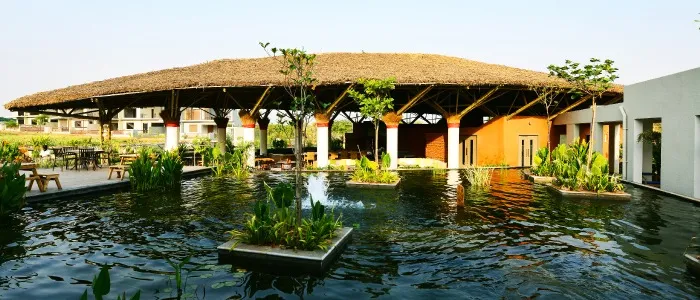
Think local. Build Eco-Habitats. Flourishin harmony. Leave a legacy.If you’re someone who is committed to living consciously, you’ve already proved that your mindset is a refreshing departure from the take-all and use-all approach. You’re over and done with the maddening pace of life and now, all you’re looking for is a sanctuary where you can create your own little serene cocoon and live a healthy life in harmony with nature.
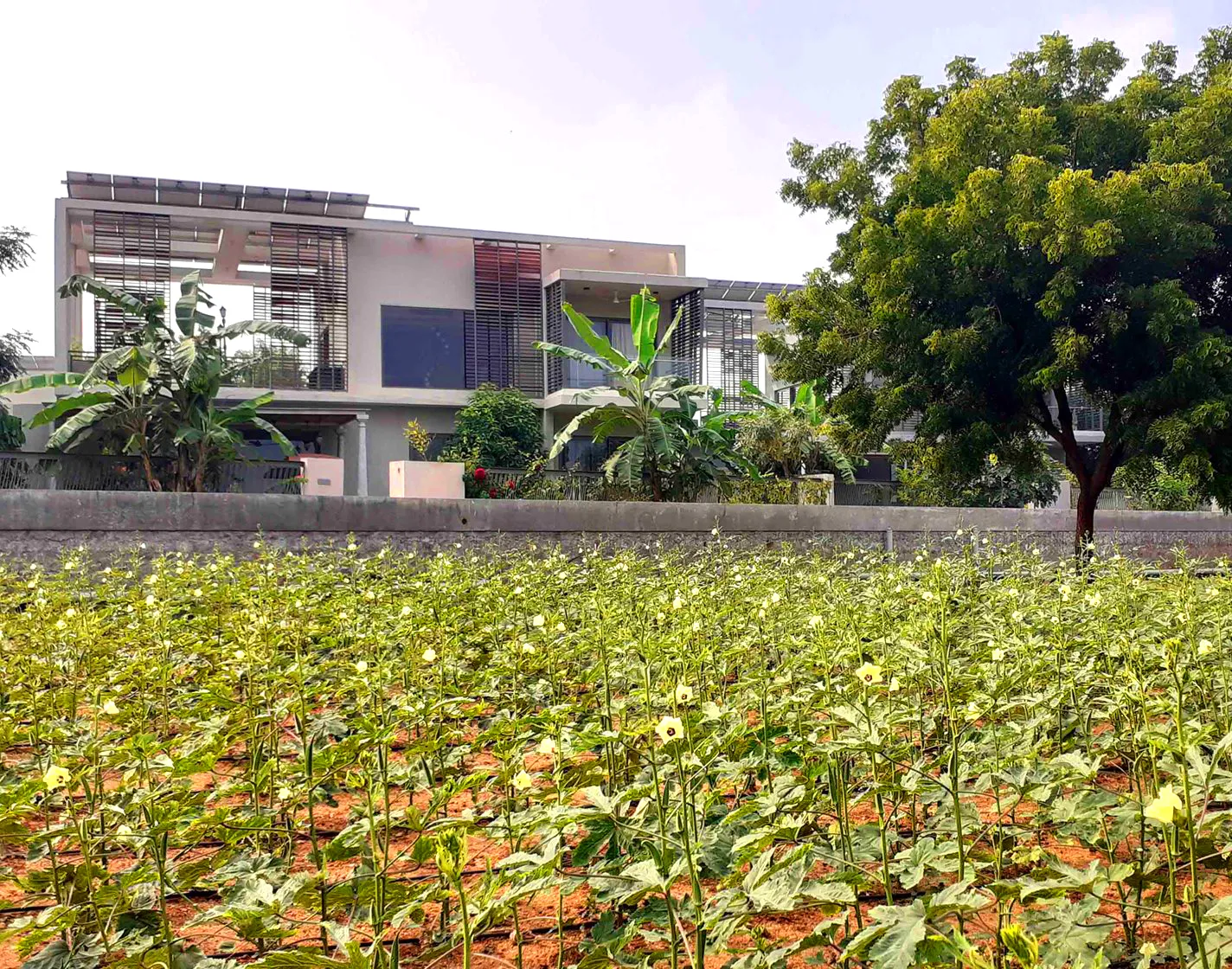
Humans, since the dawn of time, have organised themselves into communities and lived happily off the land around them. It was not until the Industrial Revolution began in Britain in the 1700s that people began moving away from their villages for work. Although slowly coming into effect in India by the mid-1800s, Asian countries had largely remained unaffected by industrialisation in the way the West had.

Haven't we all heard of IKIGAI by now, even if we haven’t read the book? At least most of us have. The four circle diagram (which apparently is not the original IKIGAI but modified by another coach circa 2014) has been the most viewed on search engines the world over. The logical mind loves concepts and processes and the creative mind loves the free flow.
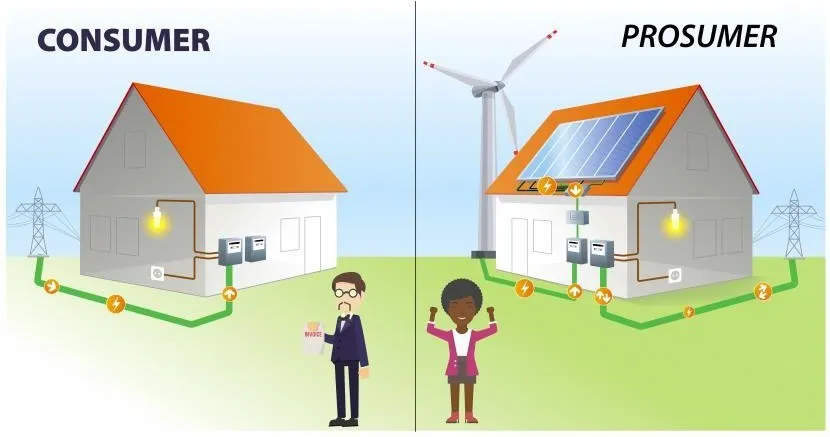
What is a Prosumer Community? Typically, any community in the city is a consumer economy. This means, there is insignificant production but a lot of consumption (food, milk, energy, water, etc.) happening within the community.
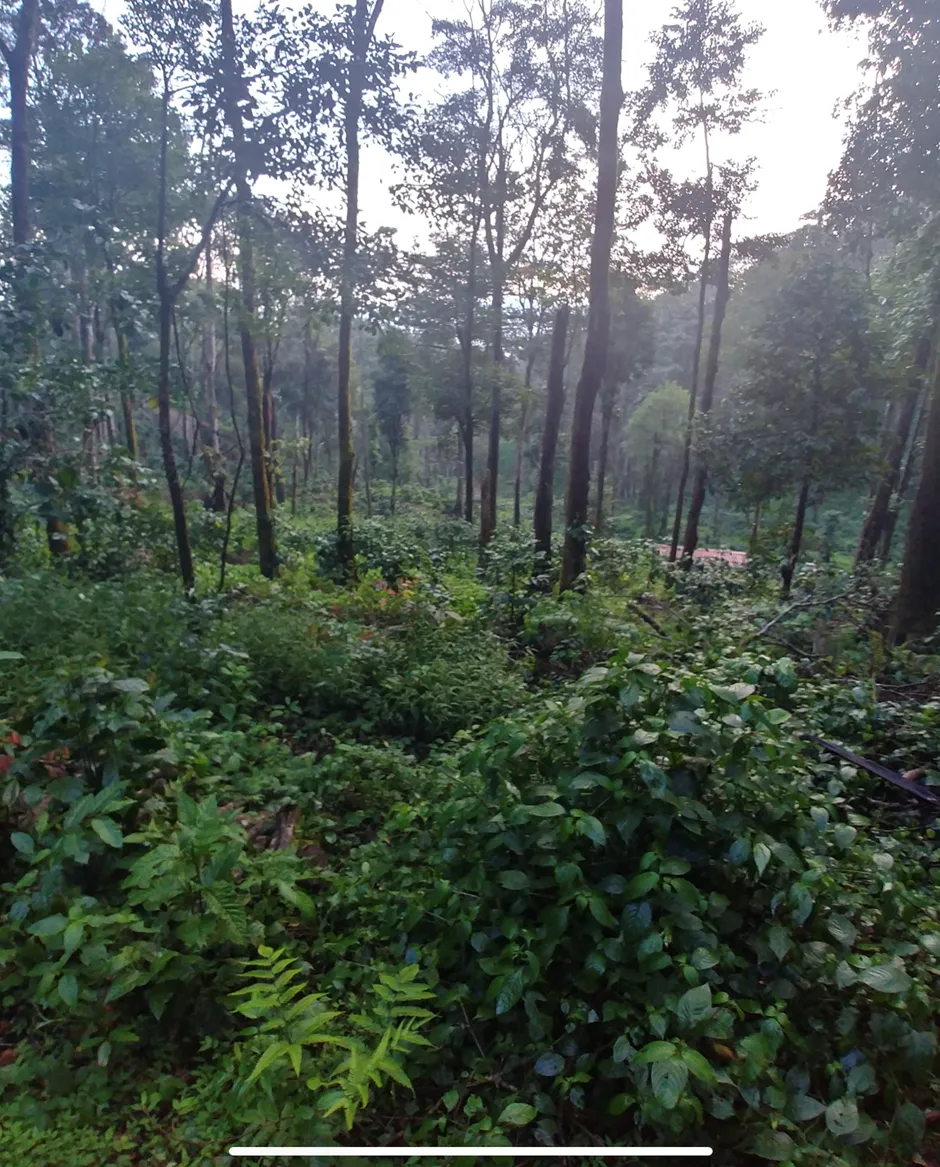
Natural Killer Cells are part of our immune systems. As the name suggests, they play a critical role in fighting virus-infected cells and tumour cells. It has been proven through experimental studies that a chemical called Phytoncide increases the NK Cell activity. Phytoncide is a chemical that is released by trees to form a web of protection against microbes and other harmful drugs. Evidently, small plants such as vegetables also emit these chemicals.
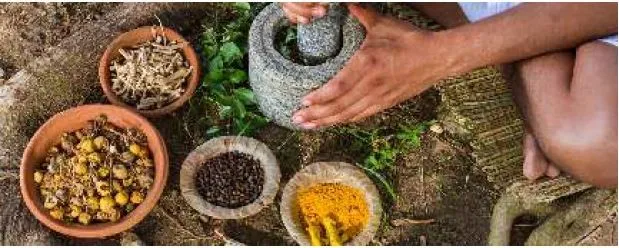
Ayurveda is a 5,000-year-old traditional Hindu system of medicine with abundant secrets to a healthy and fulfilling life. One can use the wisdom of Ayurveda to gain inner peace, balance in bodily systems, longevity, vitality, and good health.
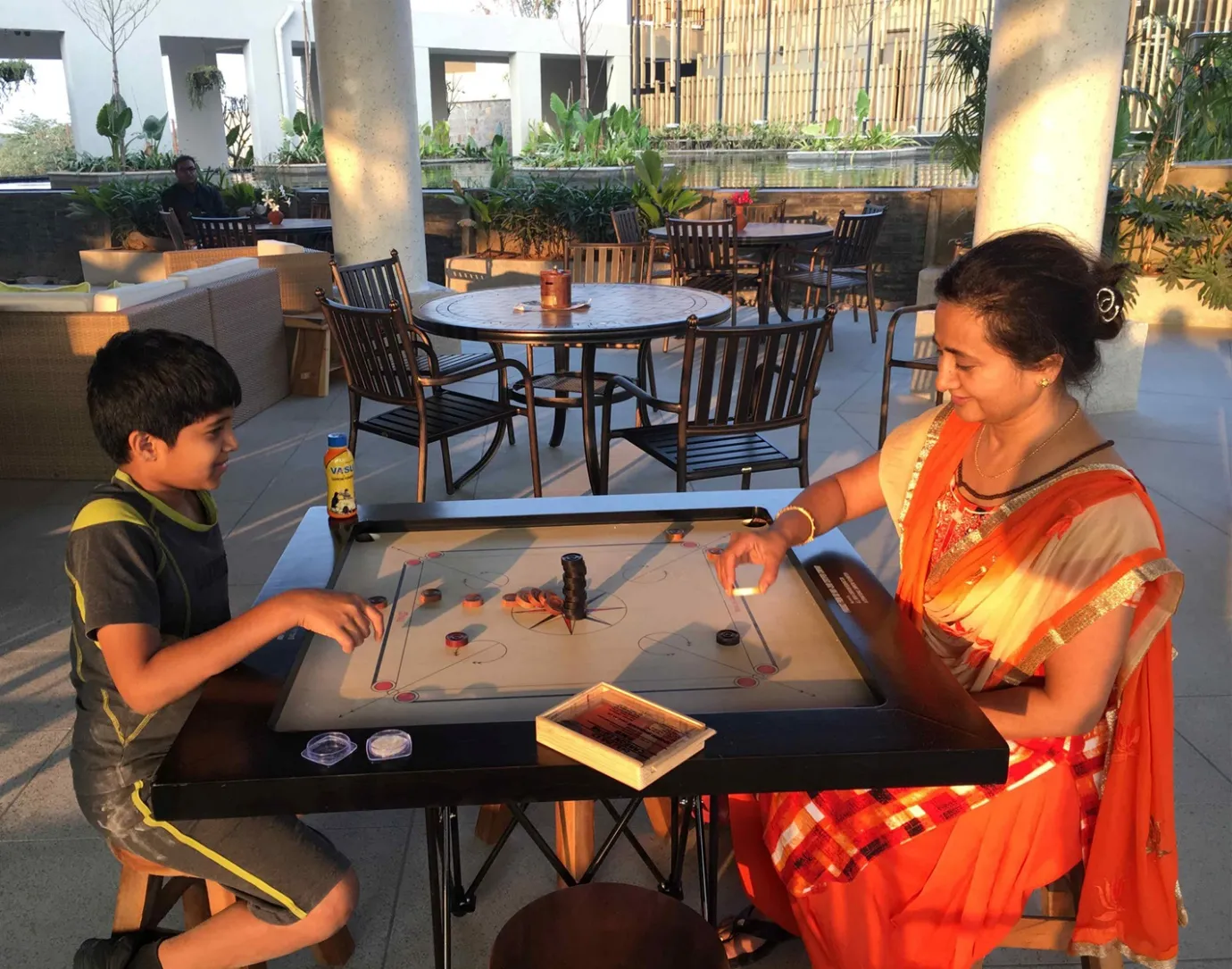
It’s quite often said, “Money can’t buy happiness”, and yet the vast majority of humans are motivated by the very idea of amassing wealth. Whatever income background one hails from, the want seems to be the same – the fisherman is just as keen to make money as the software CEO – that desire is innate. Why would we be so concerned, as a species, with chasing something that supposedly cannot make you happy? The truth is that money can bring happiness, or of course, anguish, depending upon how we decide to use it.
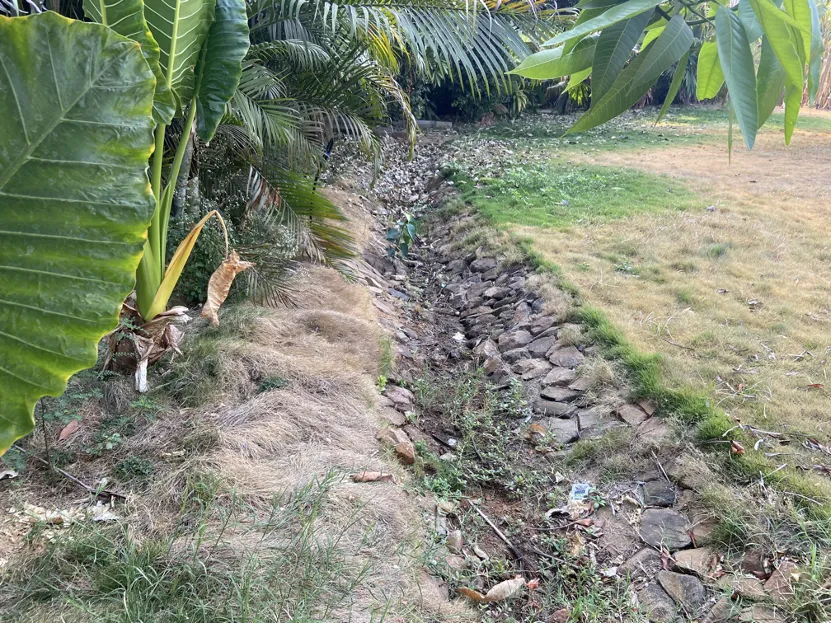
Waterlogging on roads in monsoon and dried up borewells is a common scene in our cities. With the water crisis becoming one of the major global crises, at a fast pace, it has become the need of the hour to incorporate water conservation techniques at a global level as well as individual level. More importantly, these issues are directly affecting our lives on a regular basis
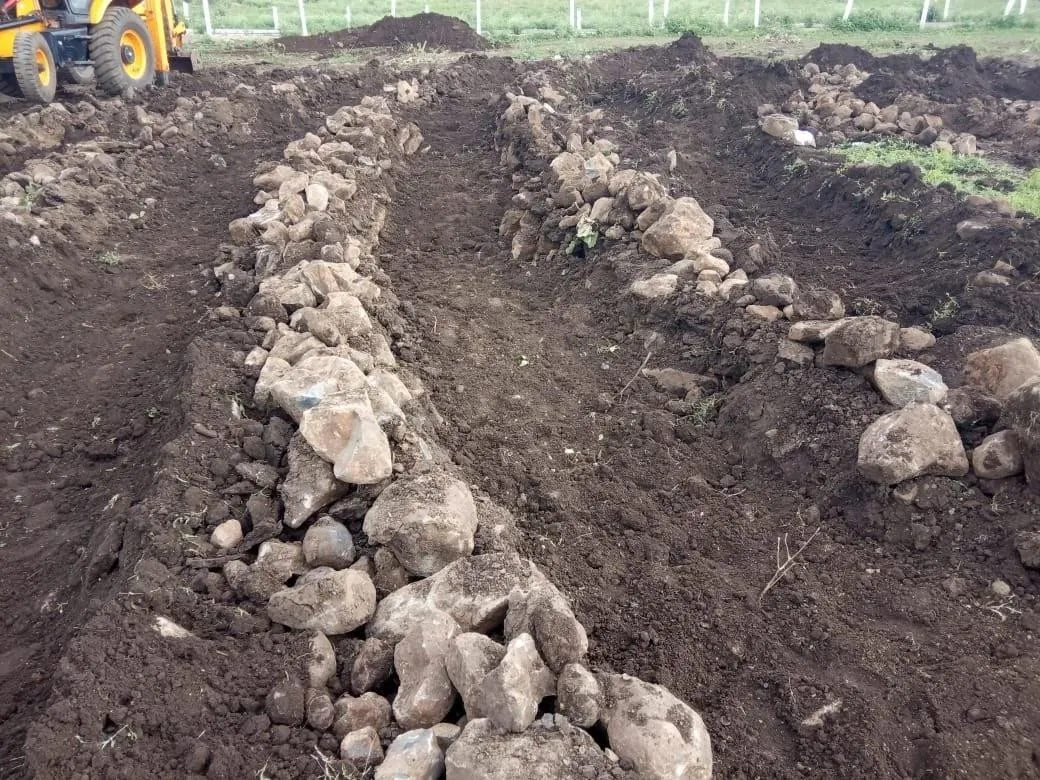
What are Continuous Contour Trenches? A continuous contour trench is dug at a right angle to the slope and are planned along contour lines. Doing so stops the water flowing downhill in its tracks by the trenches, and water percolation into the soil below is facilitated.
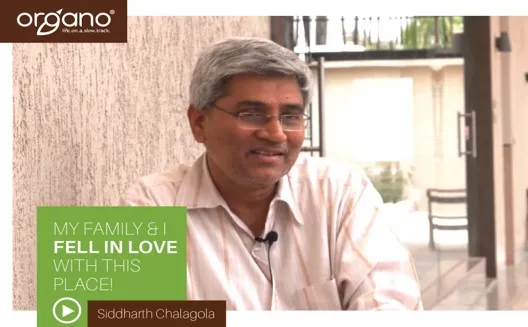
My son lives in Amsterdam and he had some capital gains that he was looking to invest in for buying property. We were looking around for places but could not find anything that struck a chord with us.
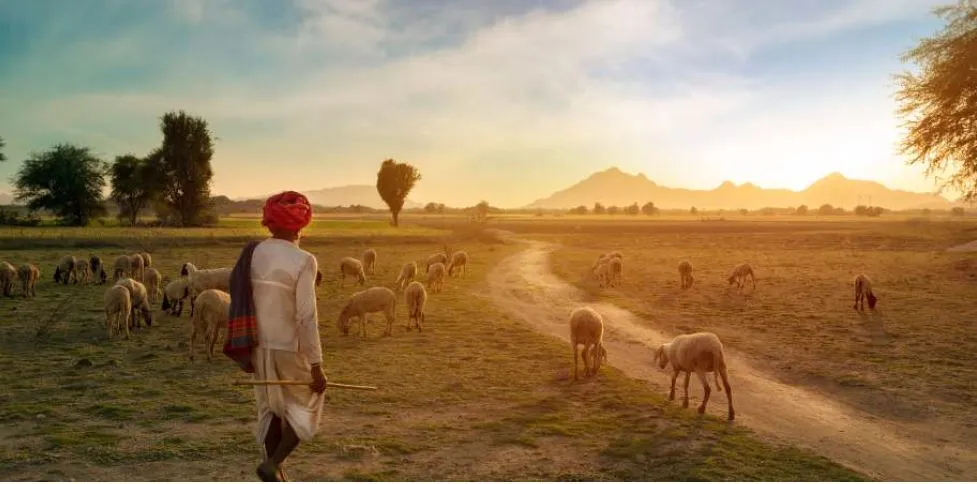
Long long ago, we lived in villages surrounded by human beings were an integral part of. With least intrusion and invasion, we coexisted with other forms of life in symbiosis. Almost every other person was engaged in some form of agriculture. Most of our ancestors were farmers. Crops were abundant and good health was taken for granted.
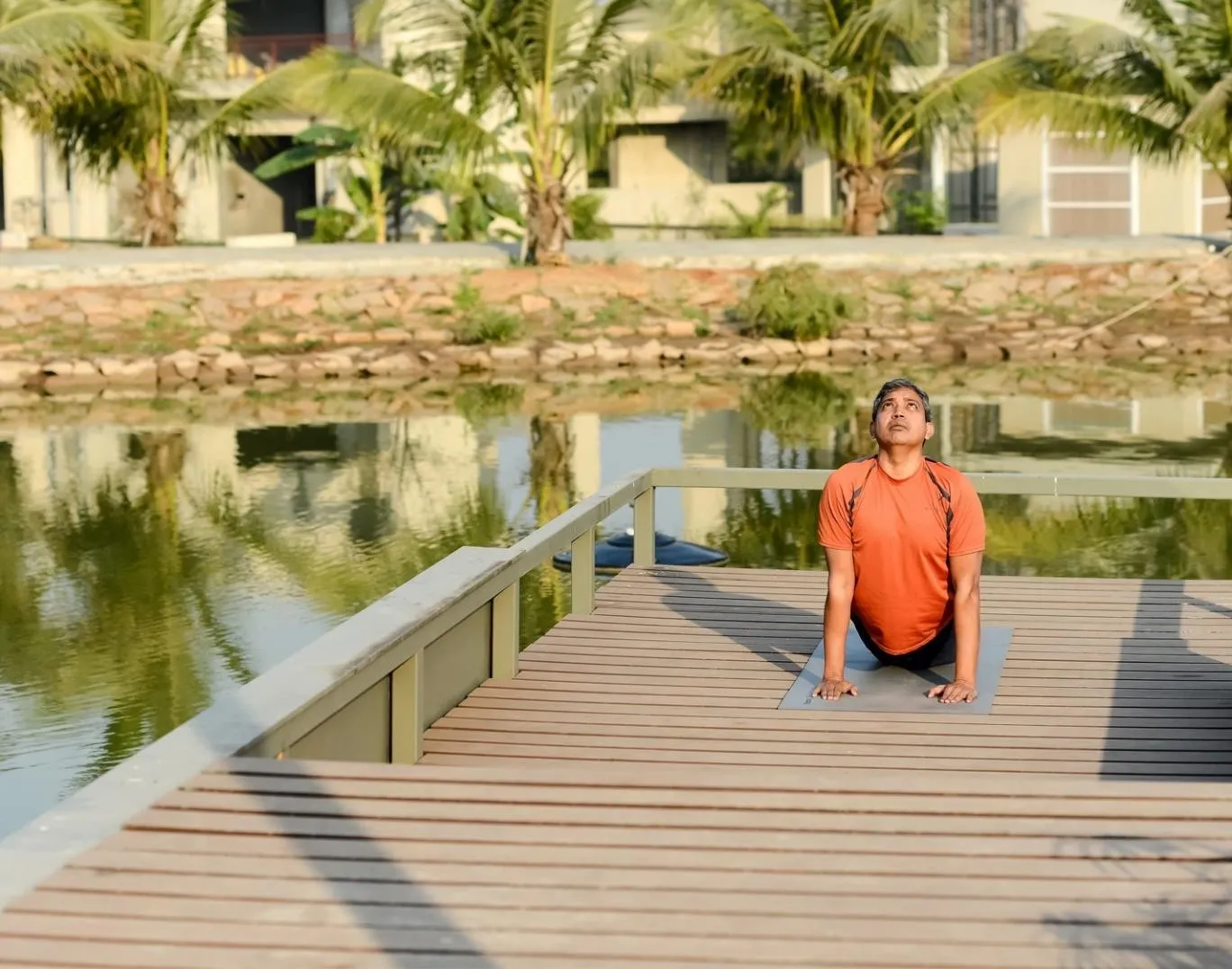
We have long been aware of the positive correlation between maintaining good physical health and a longer, happier, existence.
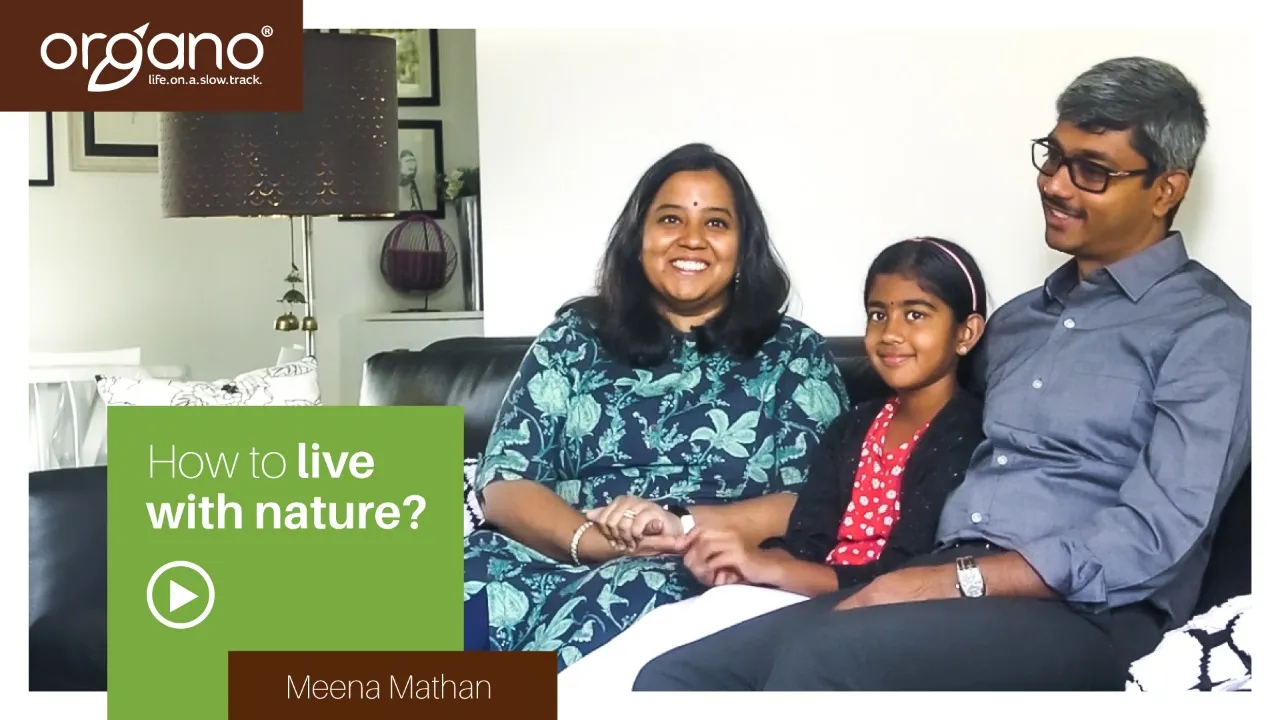
Learning to live with nature was the most significant adjustment we’ve had to make after moving to Naandi. There are times when we find frogs behind our washing machine or even in our shoes! During the monsoons, it is pretty common to see frogs around and we sometimes have a whole family staying in our utility. Likewise, there are other insects and critters that come in sometimes too. We live in their space and they are bound to stray into ours. It is only a matter of getting used to it, though.
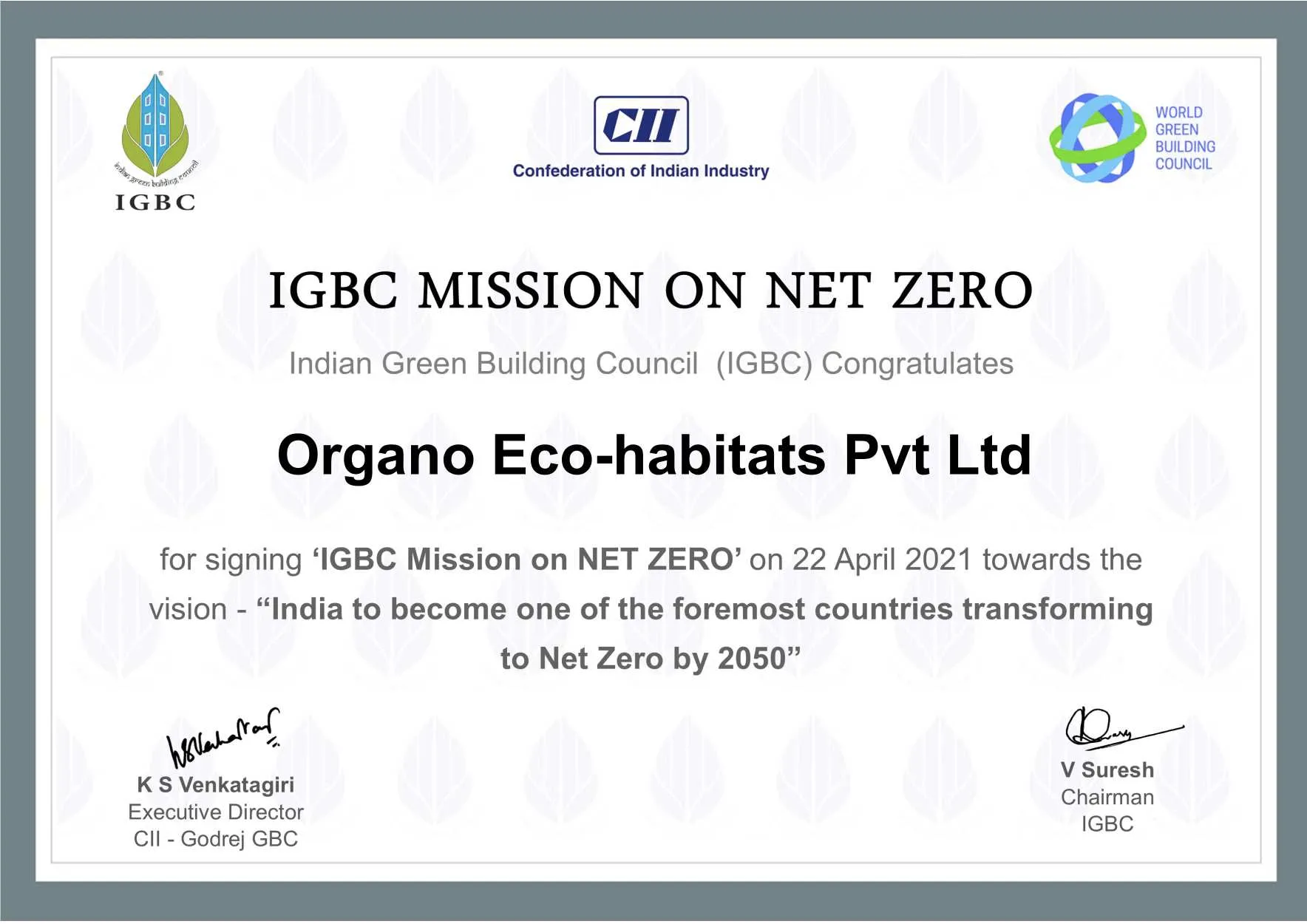
Organo signed up for IGBC's (Indian Green Building Council)IGBC Mission on Net Zero, which was recently launched on the occasion of Earth Day 2021. This is a big step for Organo because IGBC's vision of India GBC's Net Zero movement aligns with ours.
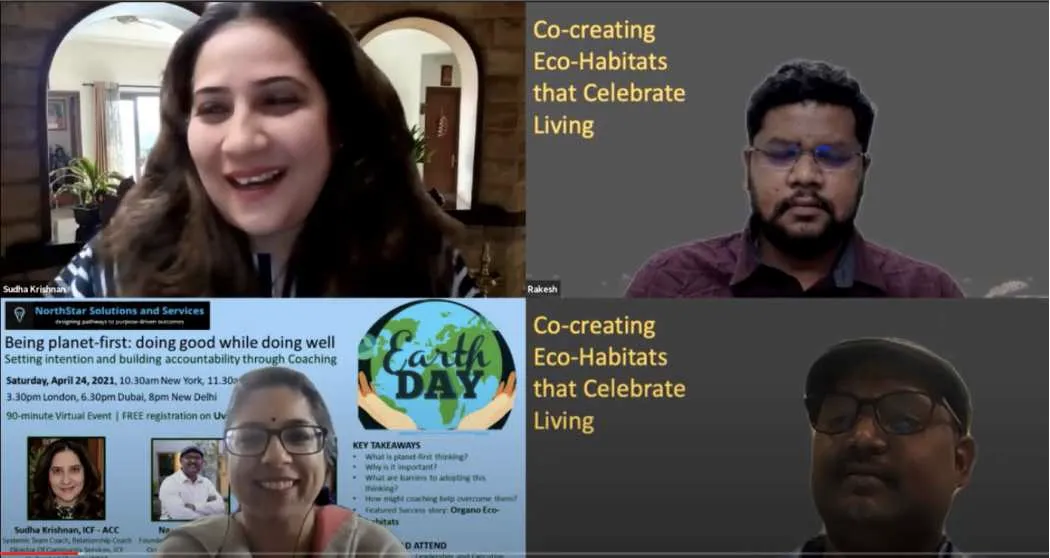
What is planet-first thinking? Why is it relevant now more than ever? Meenakshi Iyer Founder of NorthStar Solutions and Services & Personal Agility Coach organised and hosted a virtual coffee meet on Earth Day.
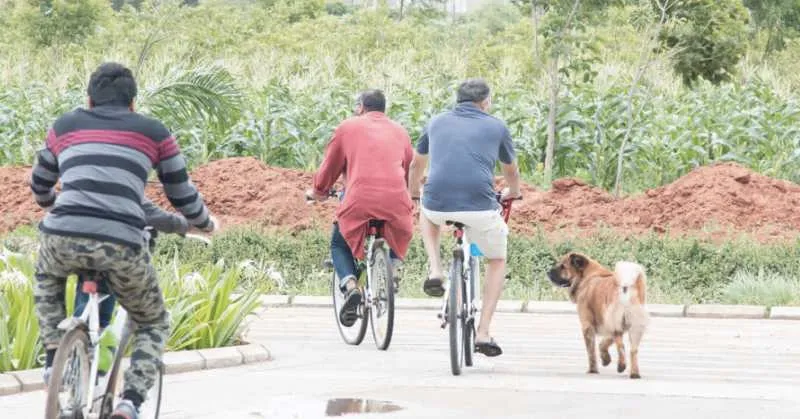
Good health is a pot of gold that we all chase (aside from actual pots of gold, of course)! One that is a drive built into our DNA, which serves as the most basic survival mechanism for our species.

The onset of the summer season reminds us to switch on our ACs and reduce the thermostat setting to 18 deg C, lower our blinds and switch on lights, increase the fan setting to max etc. It also reminds us to take out our fancy pair of sunglasses and apply multiple layers of high SPF sunscreen and sun blocks to protect our skin from the harmful UV rays.
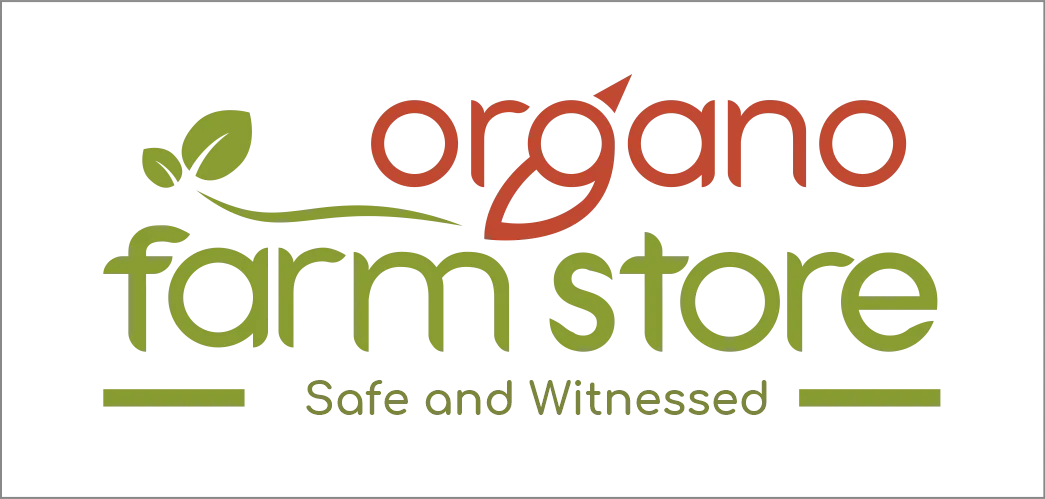
At Organo, our consistent endeavor is to provide a holistic living experience of which food is a cornerstone. As a part of this, we have started social impact initiatives that help forge a connection between the producer and the consumer (residents of Organo’s eco-habitats) in the village of Antharam.
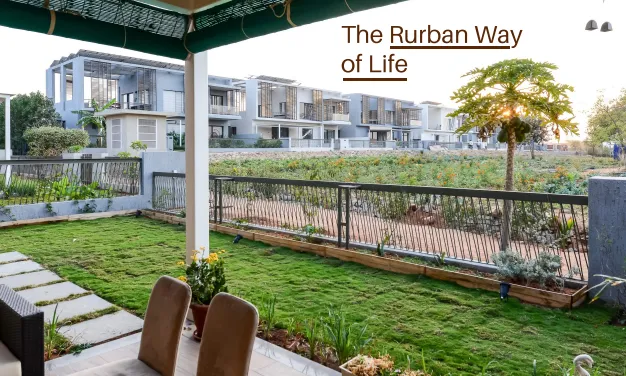
The word rurban (rural+urban) refers to a geographic territory or a landscape which possesses the economic characteristics and lifestyles of an Urban area while retaining its essential Rural area features
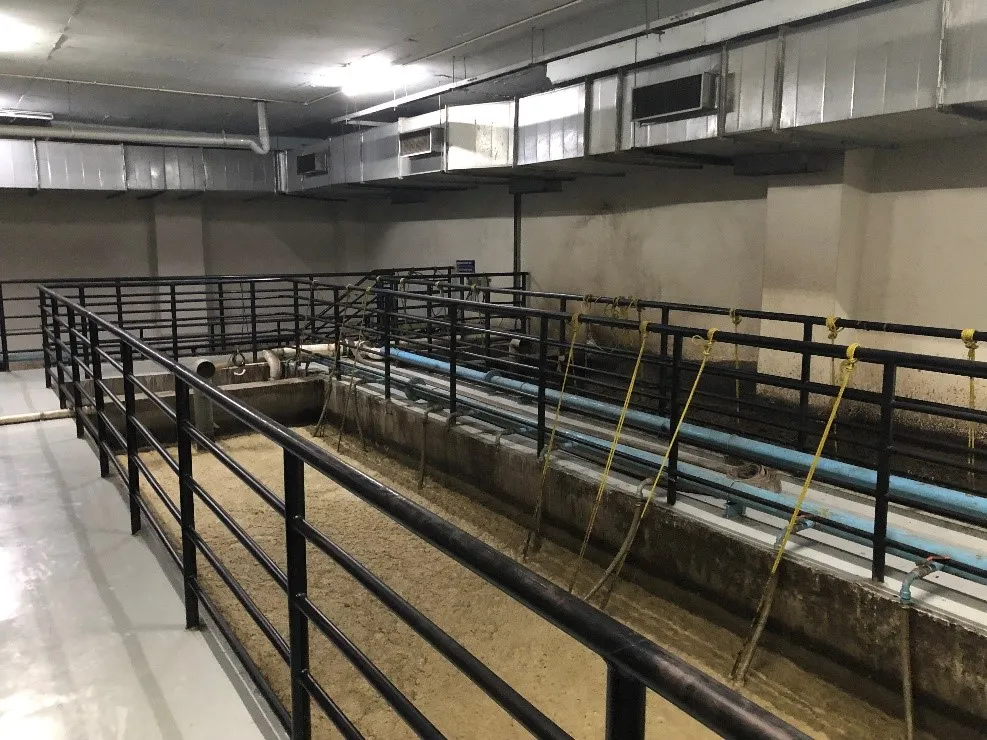
Controlling odour is one of the most important and yet most challenging aspects of a sewage treatment plant. Foul smells are often a source of igniting objections from the neighbor's. However, as levied from the Telangana govt it is mandatory to install STP in a housing community with an area of more than 10,000sqm.
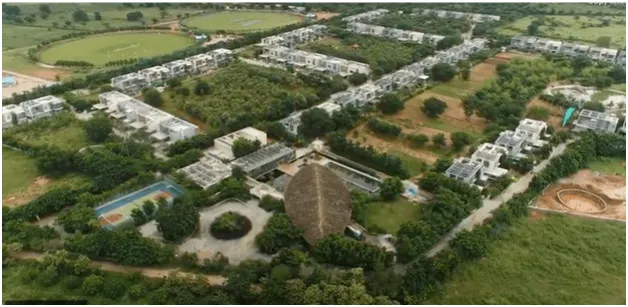
Typically, in a Real Estate investment in cities, more than 50% of the cost is spent in land acquisition. The other components such as shelter, and infrastructure depreciate over time. Not only this but the natural resources such as groundwater table, flora and fauna are also depleted and destroyed.
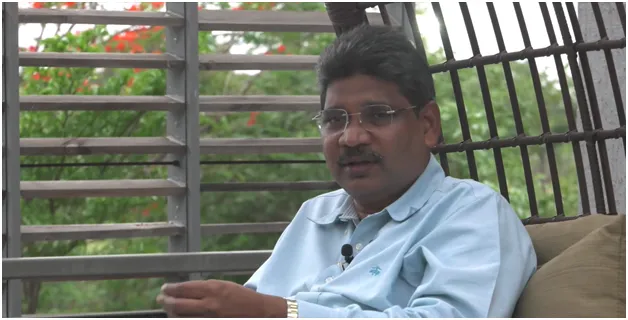
“I love the Rurban way of living in Naandi. Having grown up in a village, this is the perfect place that I have found to reconnect with my roots. My home at Naandi has all the amenities of modern living that I can look for. In fact, I would say that it is more modern than my house in the city! Yet, the rural way of life blends in so seamlessly here.
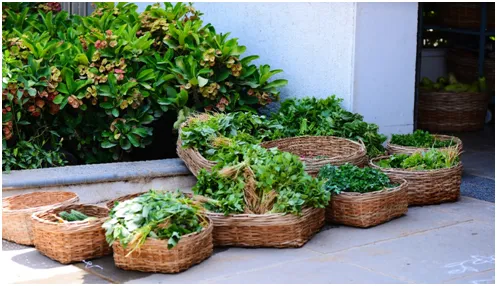
Organic food has been a rage for health-conscious consumers over the past decade. But one question that lingers in everyone who looks to buy “Organic”
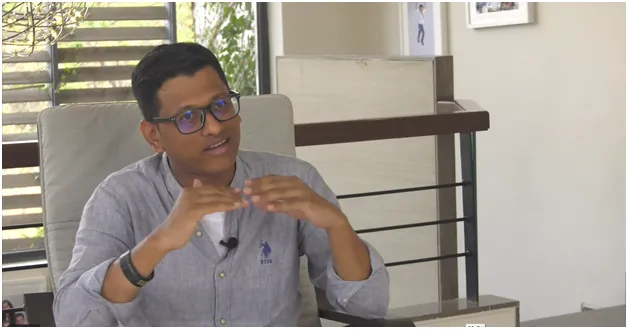
“The only little compromise that we’ve had to make was the distance. Yes, Naandi is a little away from the city, but come to think of it, hardly so. It simply comes down to starting the day a few minutes or even an hour earlier than otherwise to be able to reach my workplace on time. That, in my opinion, is hardly a compromise for the life that we live here.
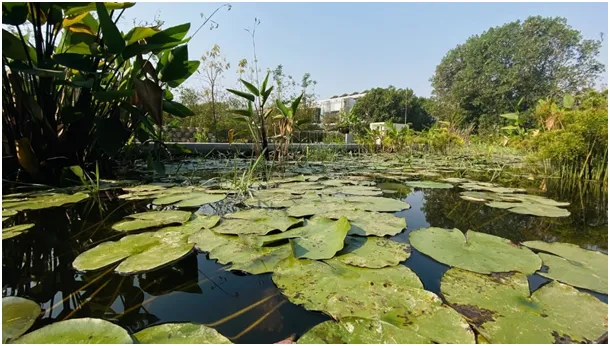
Bio-pools are wonderful to swim in. But as the name suggests, it is a biological environment which has ecosystems thriving in it. Depending on the season and aquatic life, there will be algae blooming in the
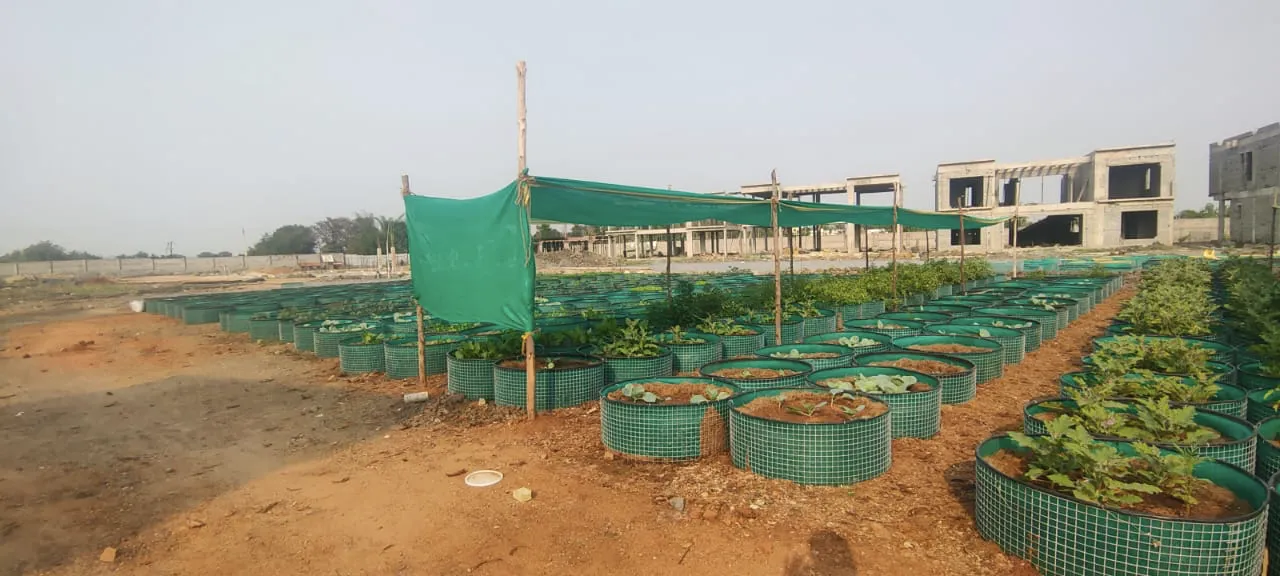
At Rurban Nest, the families have started harvesting their own safe and witnessed food.
They are professionals by the weekday and community farmers by the weekend. They grow their own vegetables and fruits, breed their own chicken and raise their own cattle for fresh milk. Apart from this, they engage in nature’s bounty with serene pockets of mini forests, landscaping and water bodies that are habitats for birds, animals, insects and aqua life.
At Organo, every element of nature – air, water, earth – is harnessed, preserved and nourished. According to ayurveda, human physiology is a reflection of the laws of the universe, and the more in tune our lives are with nature, the healthier we will be! Our bodies possess the natural intelligence to process foods that are closest to nature, such as fresh whole grains and organically-grown fruits and vegetables.
Tremendous amount of energy is gathered around the Agnihotra copper pyramid just at Agnihotra time. A magnetic-type field is created, which neutralizes negative energies and reinforces positive energies. – Jaya Prakash, Architect, Vaastu & Energy Expert – FHD Group Human beings have created problems for themselves with their irresponsible greed for more.
Remember them? Our gentle little guests! Every morning they would wake us up with a familiar tune. Perched on ledges and lofts, they would hop right inside our houses and in the balconies the whole day, full of life, taking occasional tiny bites from our leftover supper. Nesting on low branches, in our homes and in sheds, they would put a smile on our faces us no matter what. Sparrows have been an integral part of our growing up years.

At Organo, every element of nature – air, water, earth – is harnessed, preserved and nourished. According to ayurveda, human physiology is a reflection of the laws of the universe, and the more in tune our lives are with nature, the healthier we will be! Our bodies possess the natural intelligence to process foods that are closest to nature, such as fresh whole grains and organically-grown fruits and vegetables.

Tremendous amount of energy is gathered around the Agnihotra copper pyramid just at Agnihotra time. A magnetic-type field is created, which neutralizes negative energies and reinforces positive energies. – Jaya Prakash, Architect, Vaastu & Energy Expert – FHD Group Human beings have created problems for themselves with their irresponsible greed for more.

Remember them? Our gentle little guests! Every morning they would wake us up with a familiar tune. Perched on ledges and lofts, they would hop right inside our houses and in the balconies the whole day, full of life, taking occasional tiny bites from our leftover supper. Nesting on low branches, in our homes and in sheds, they would put a smile on our faces us no matter what. Sparrows have been an integral part of our growing up years.